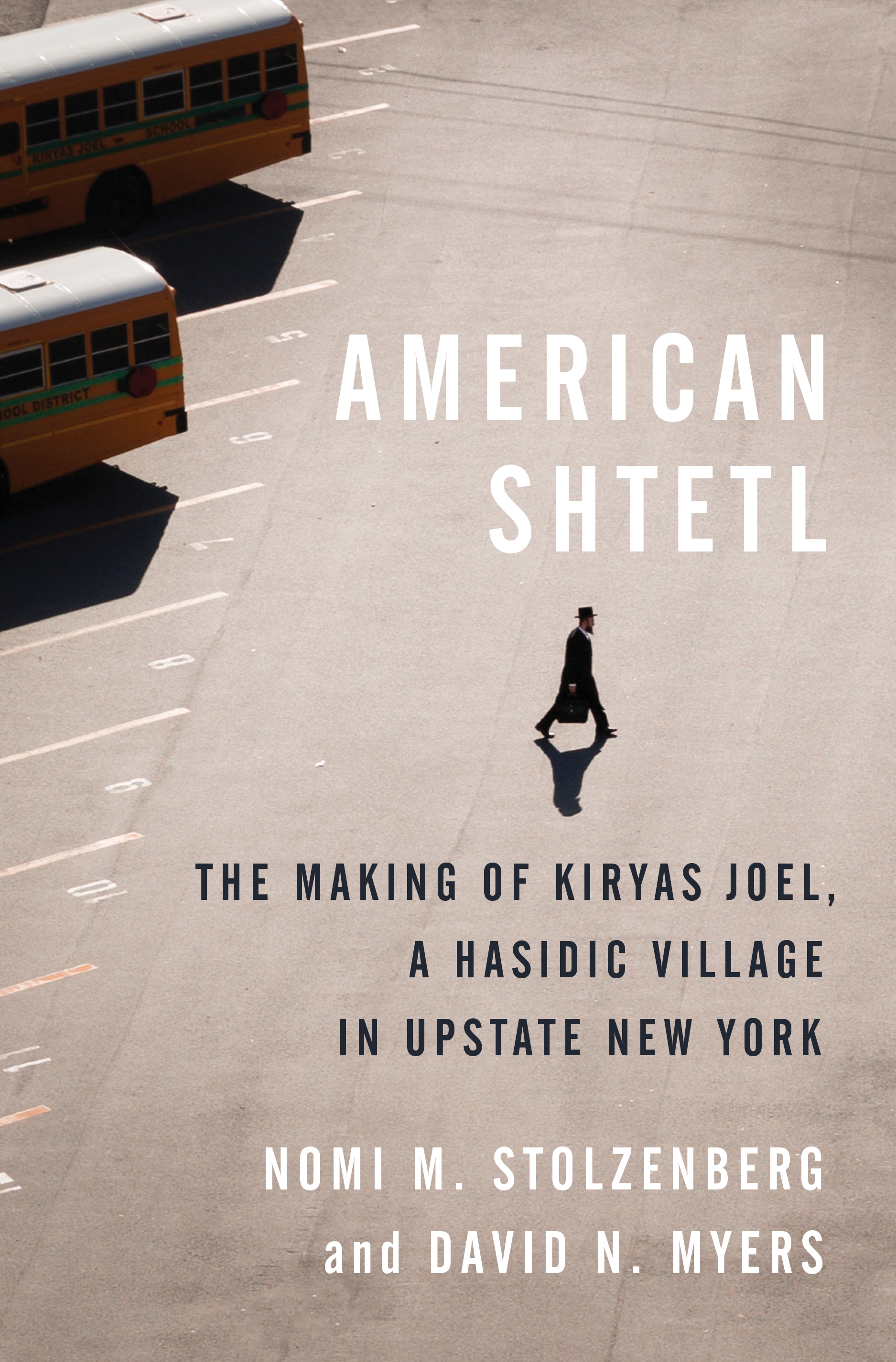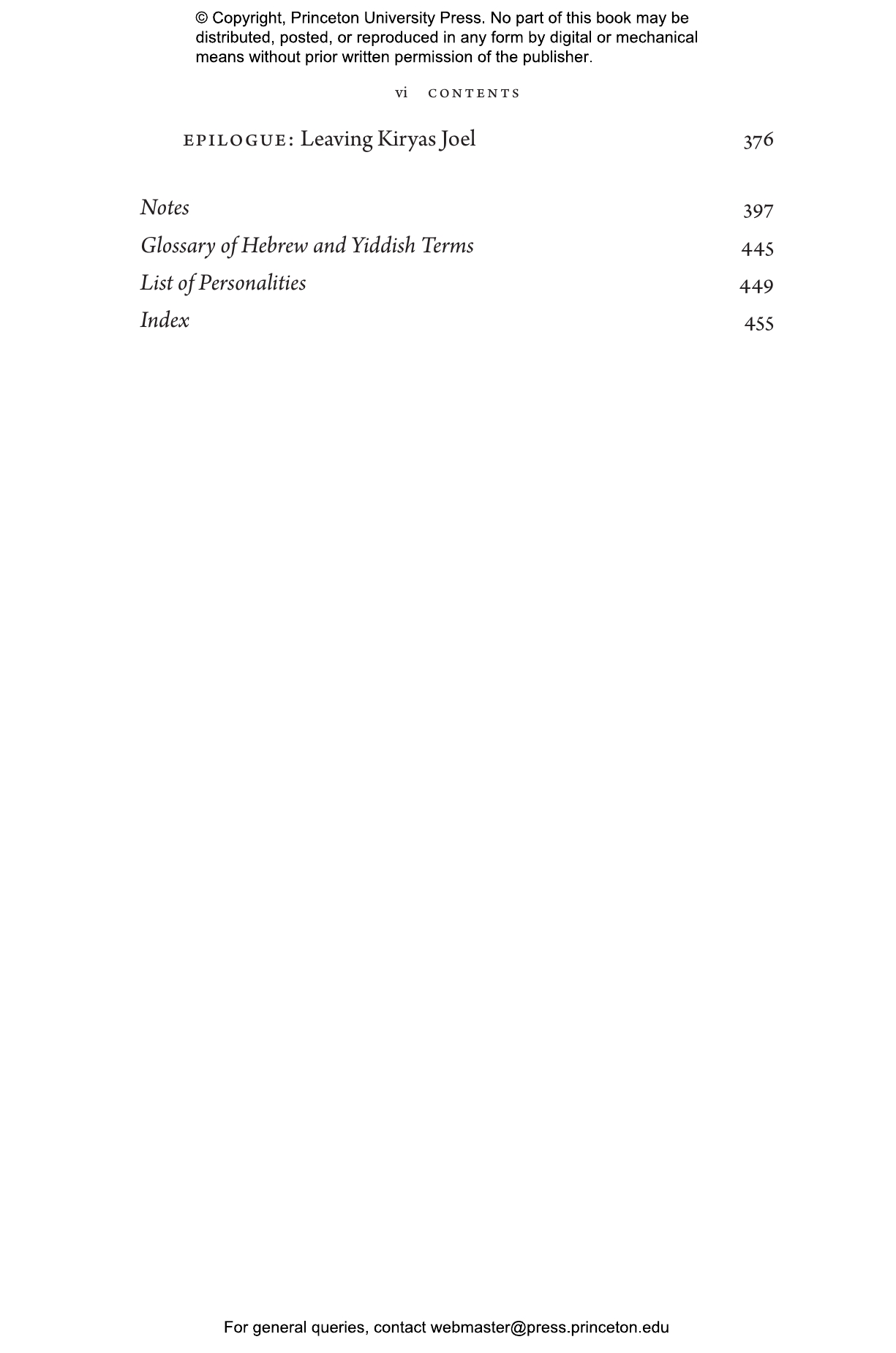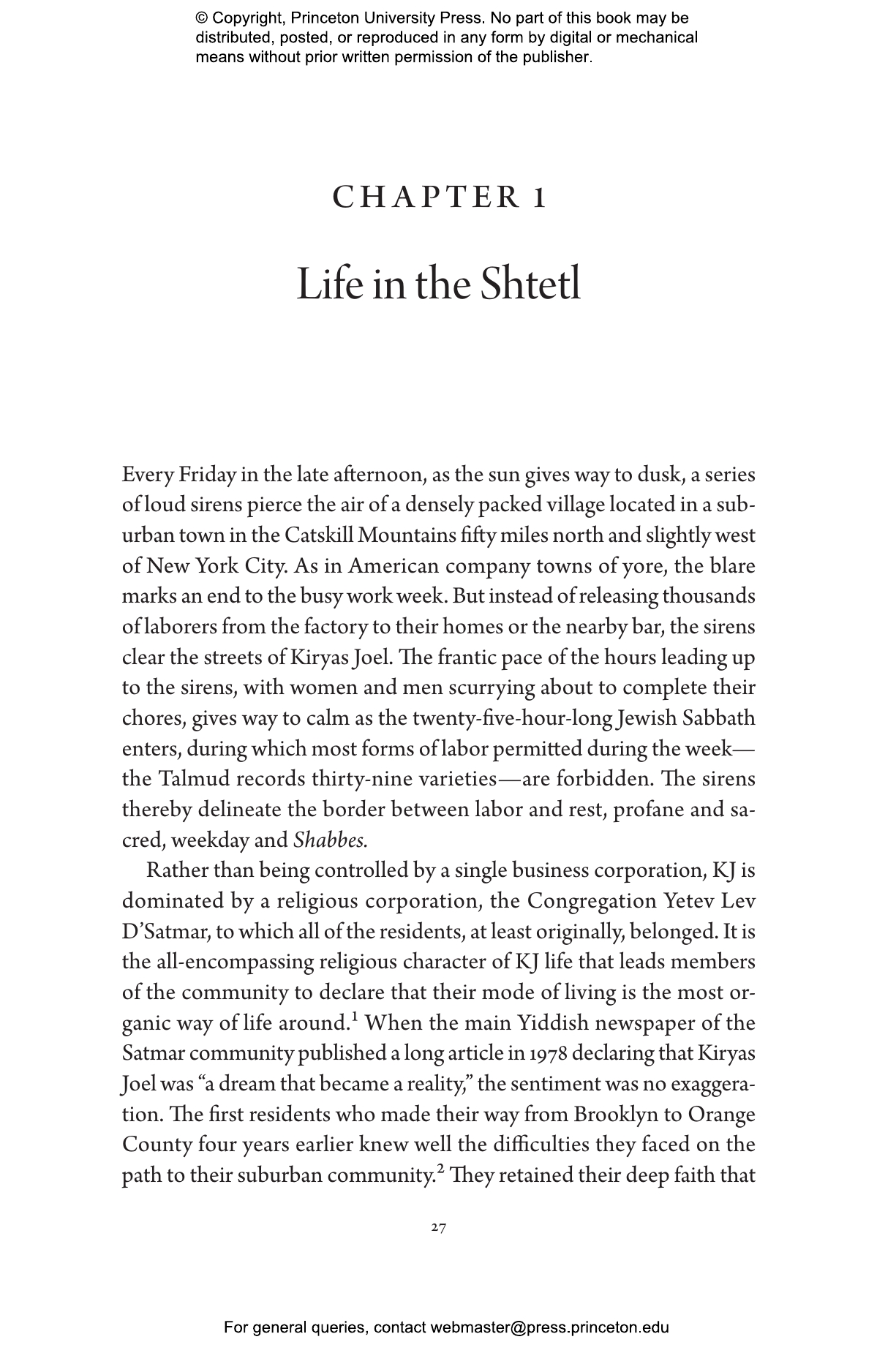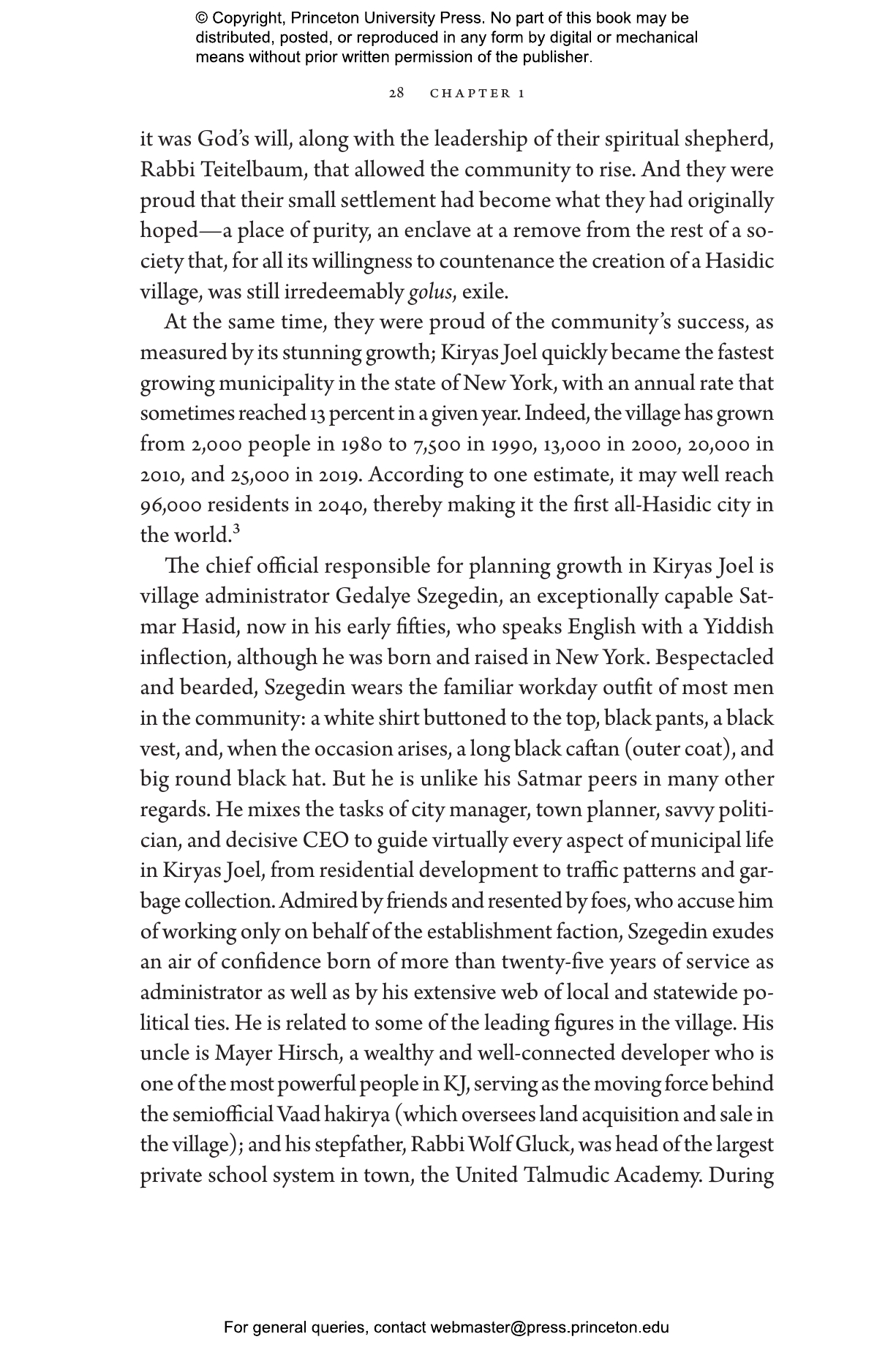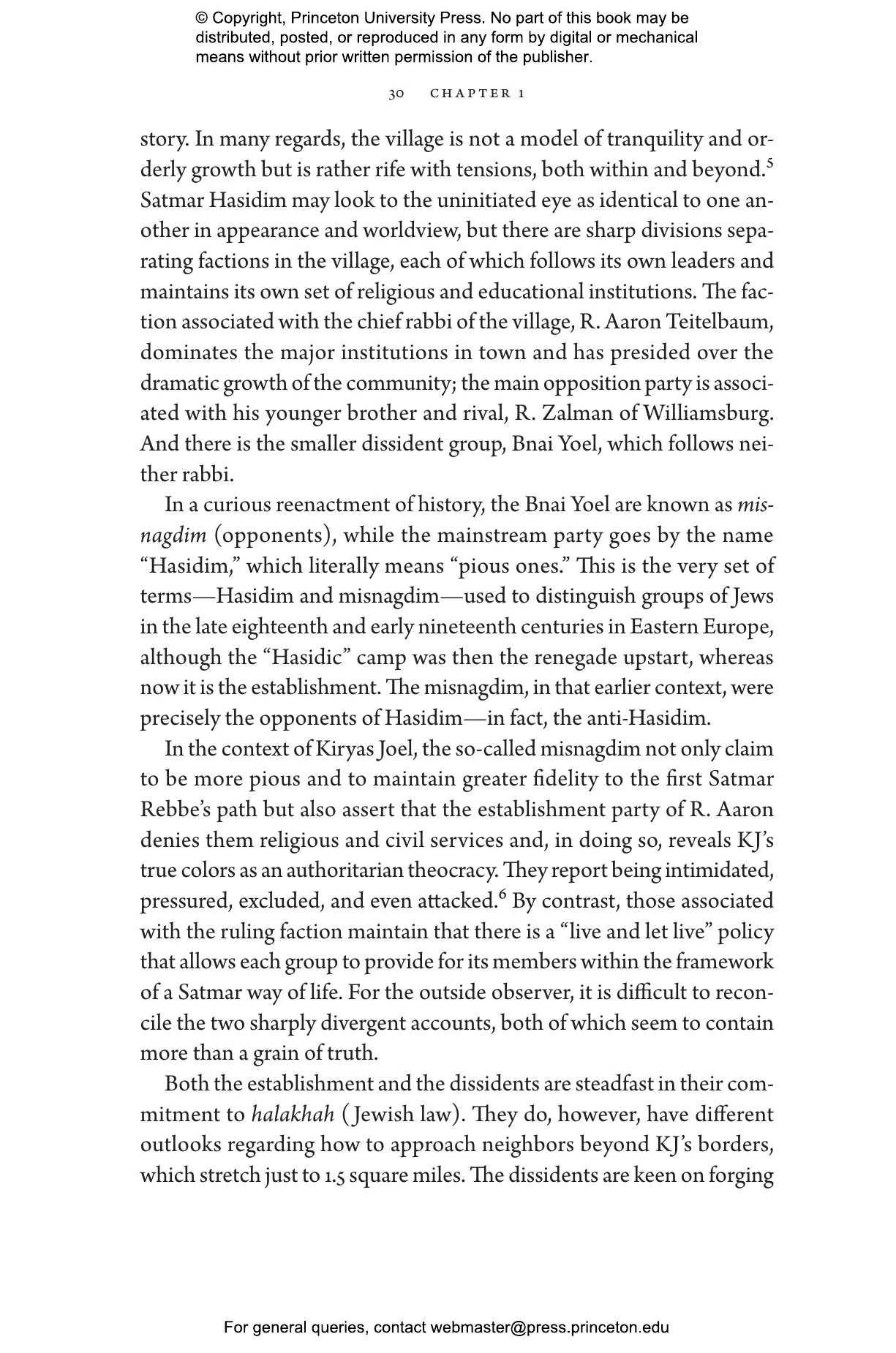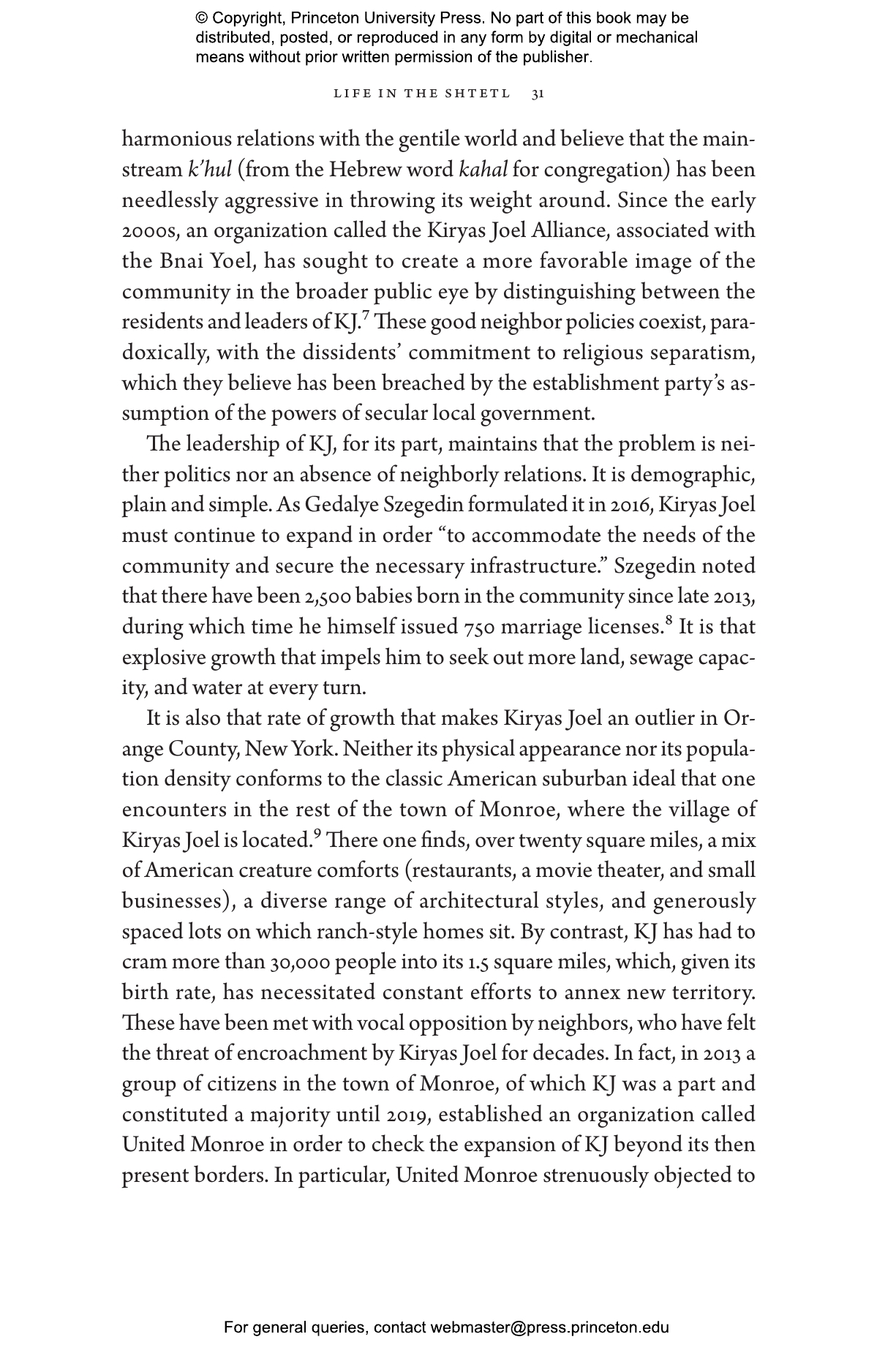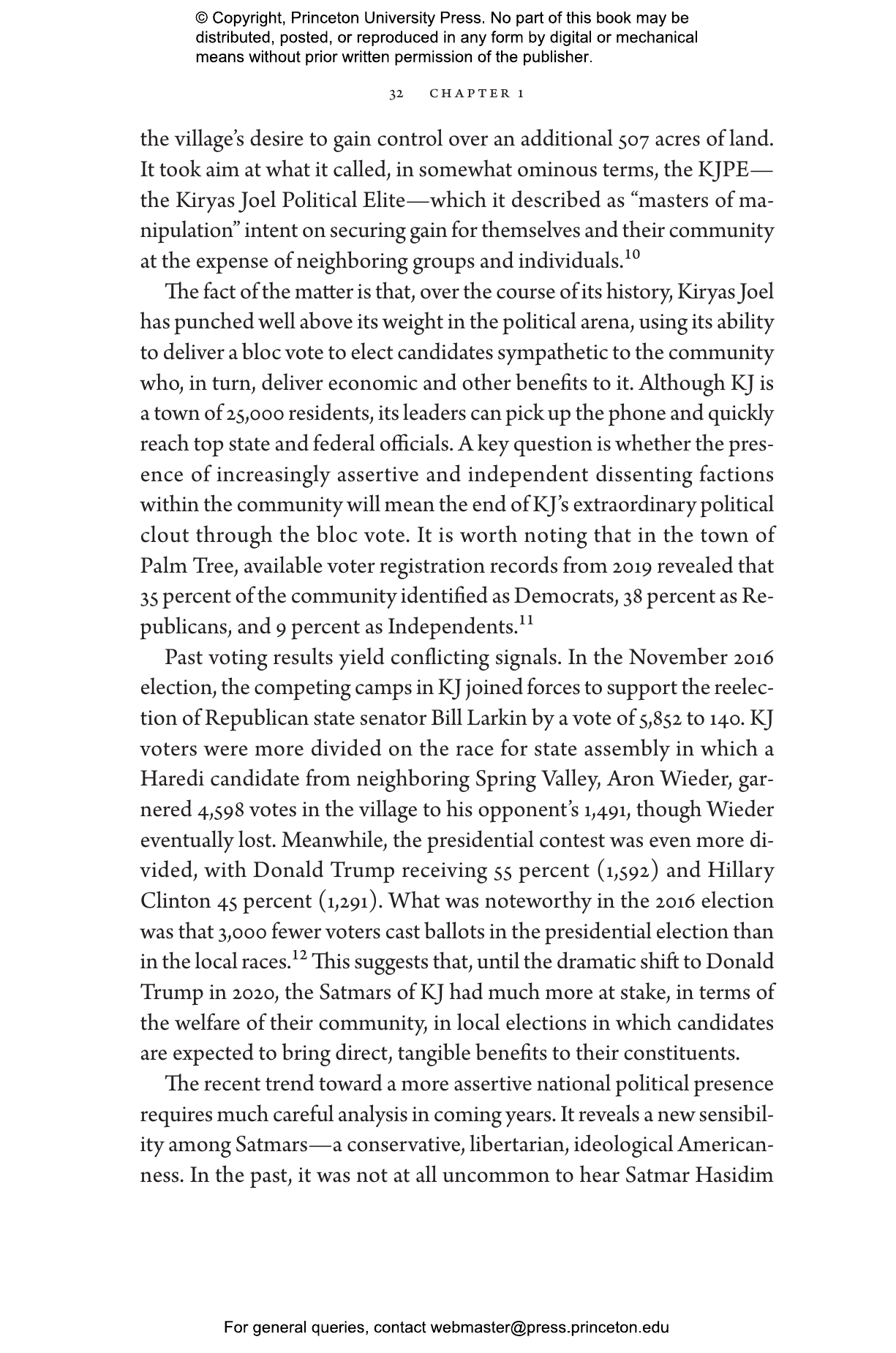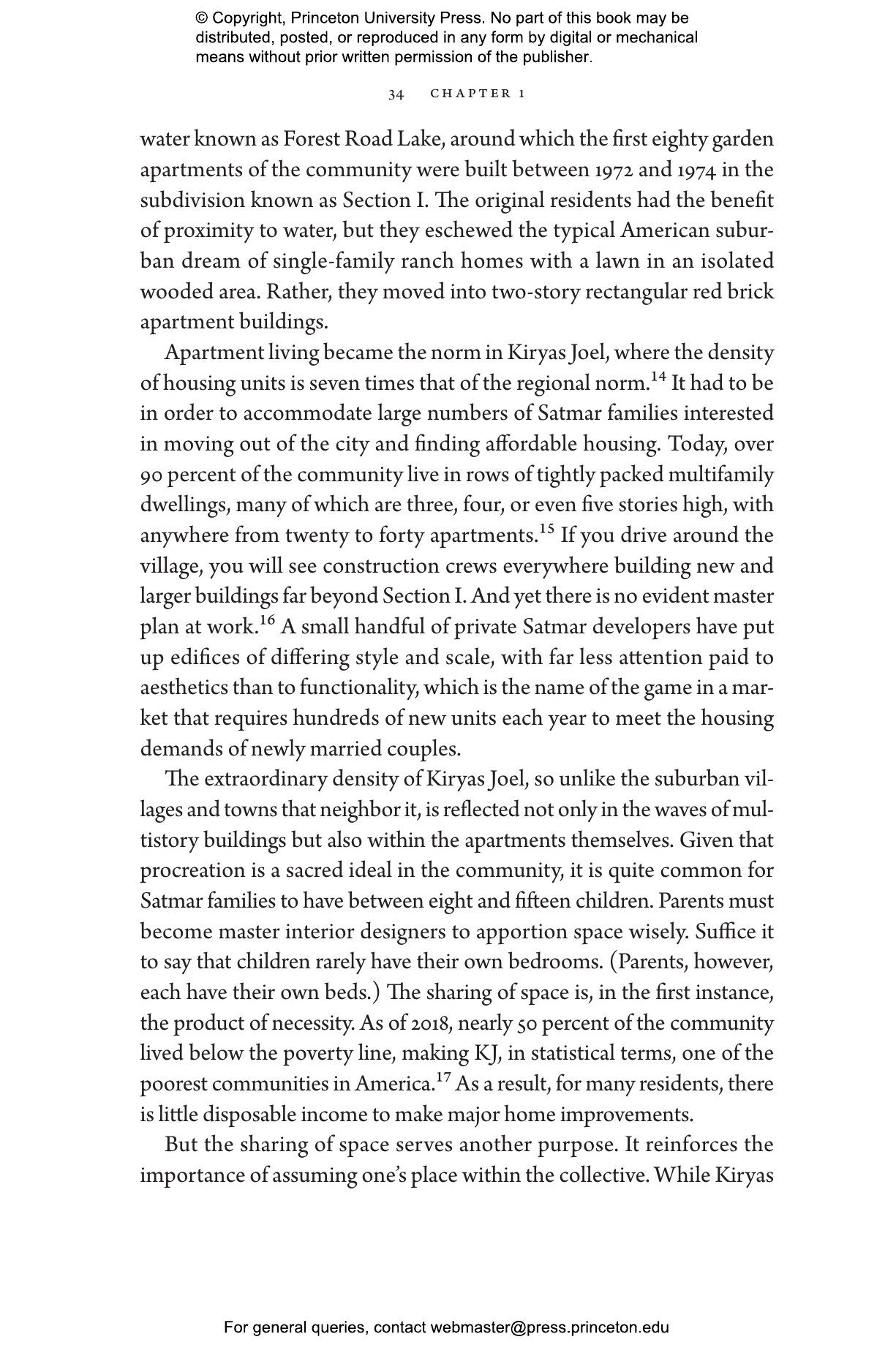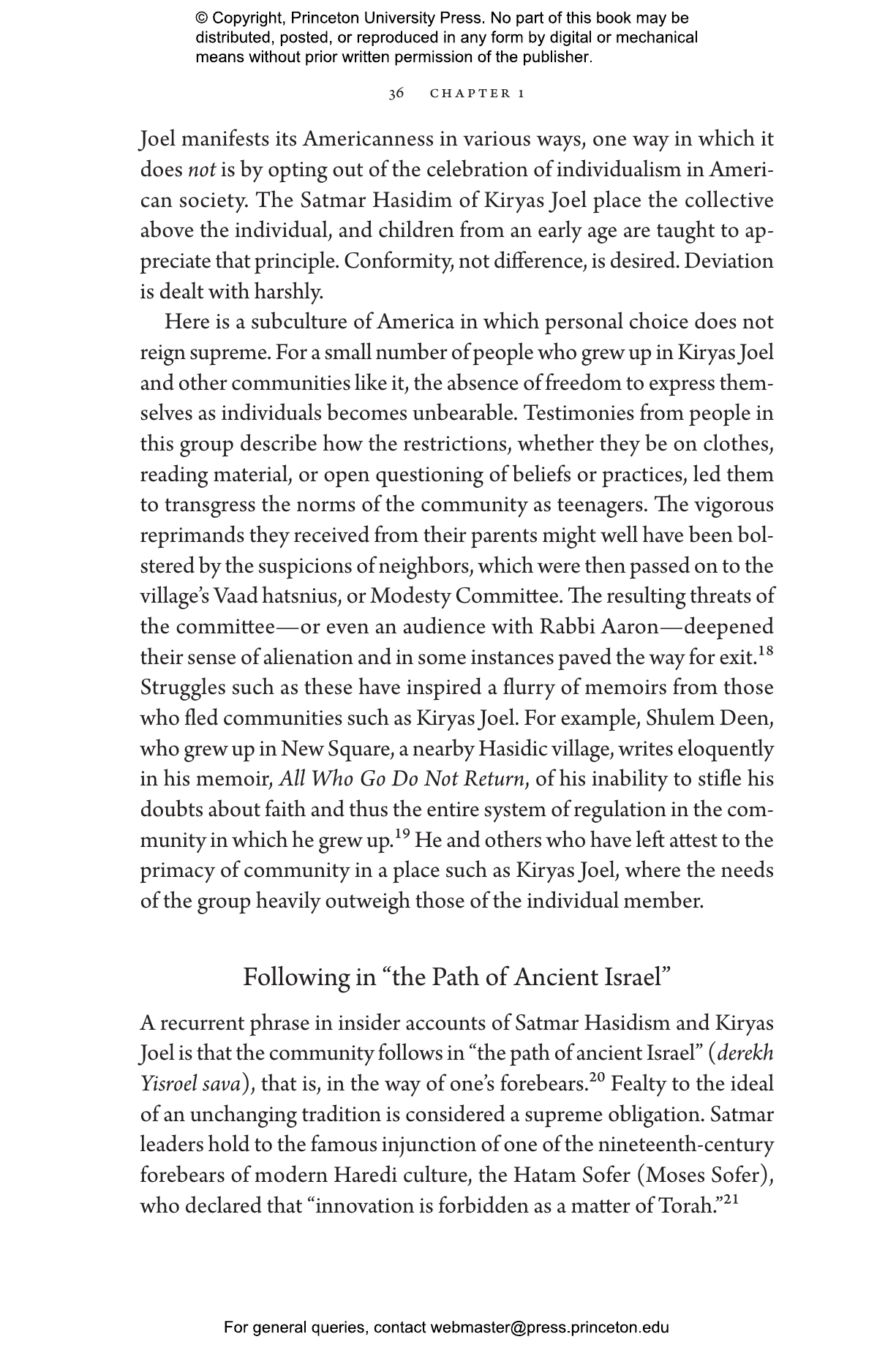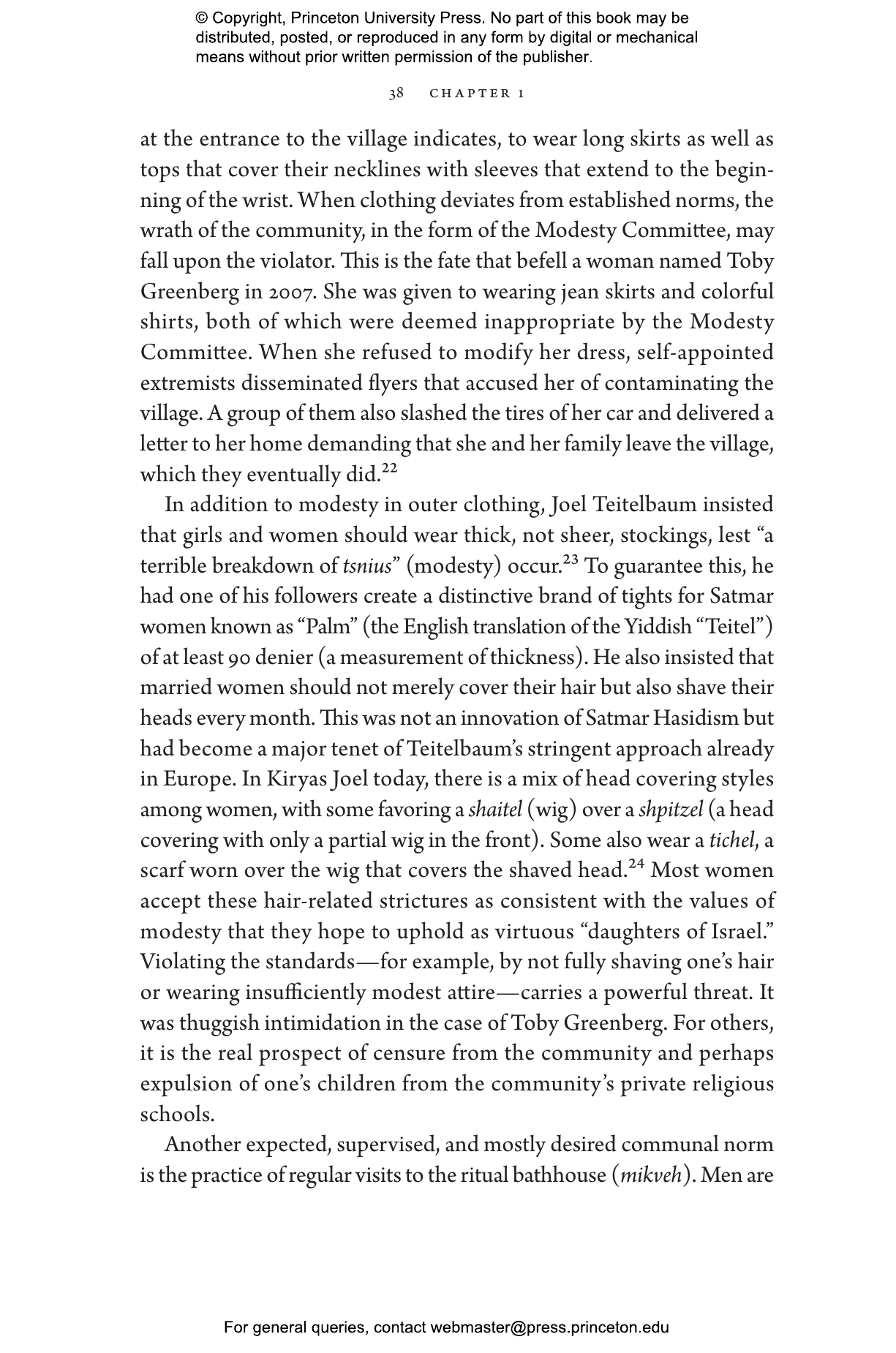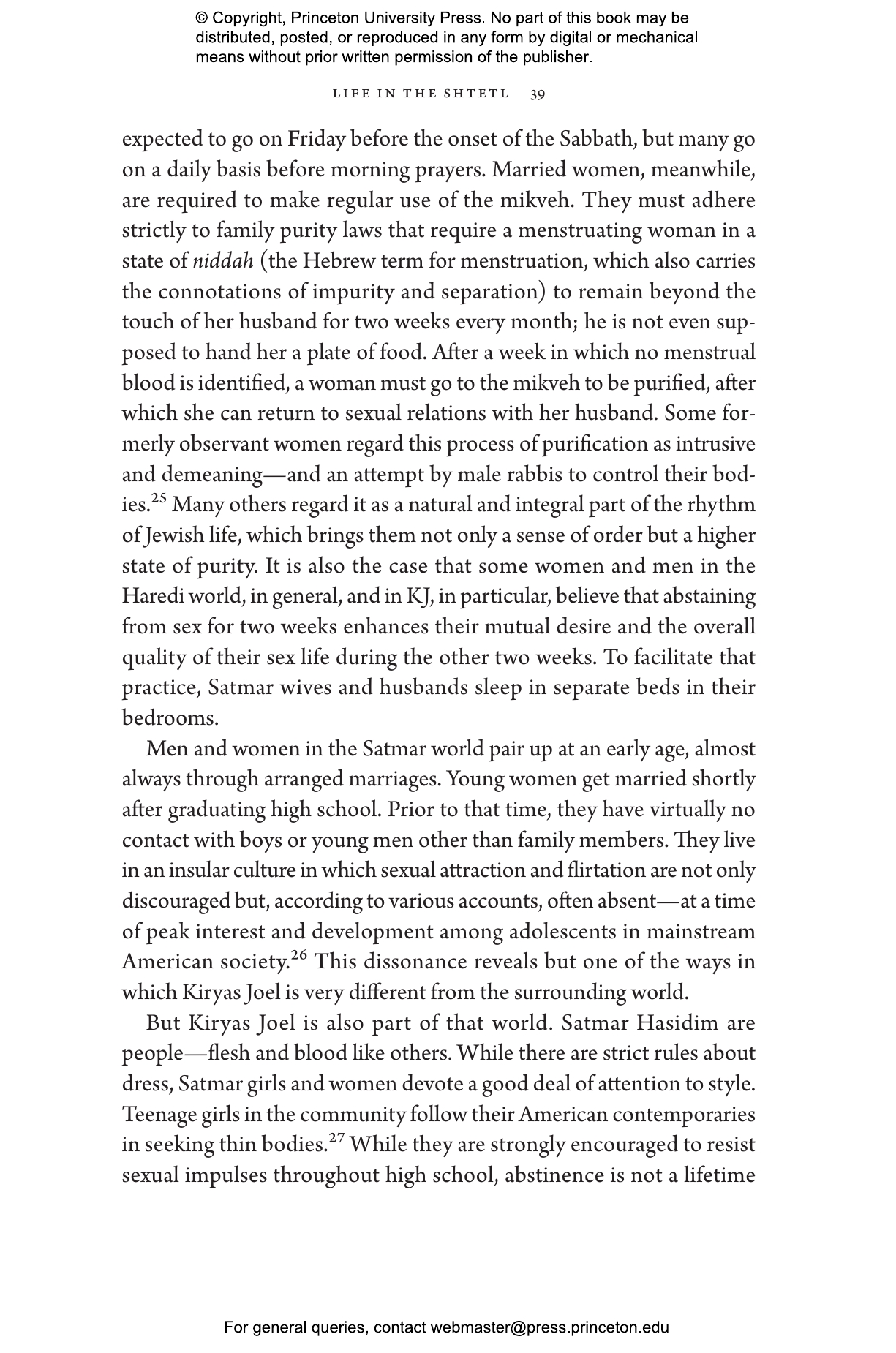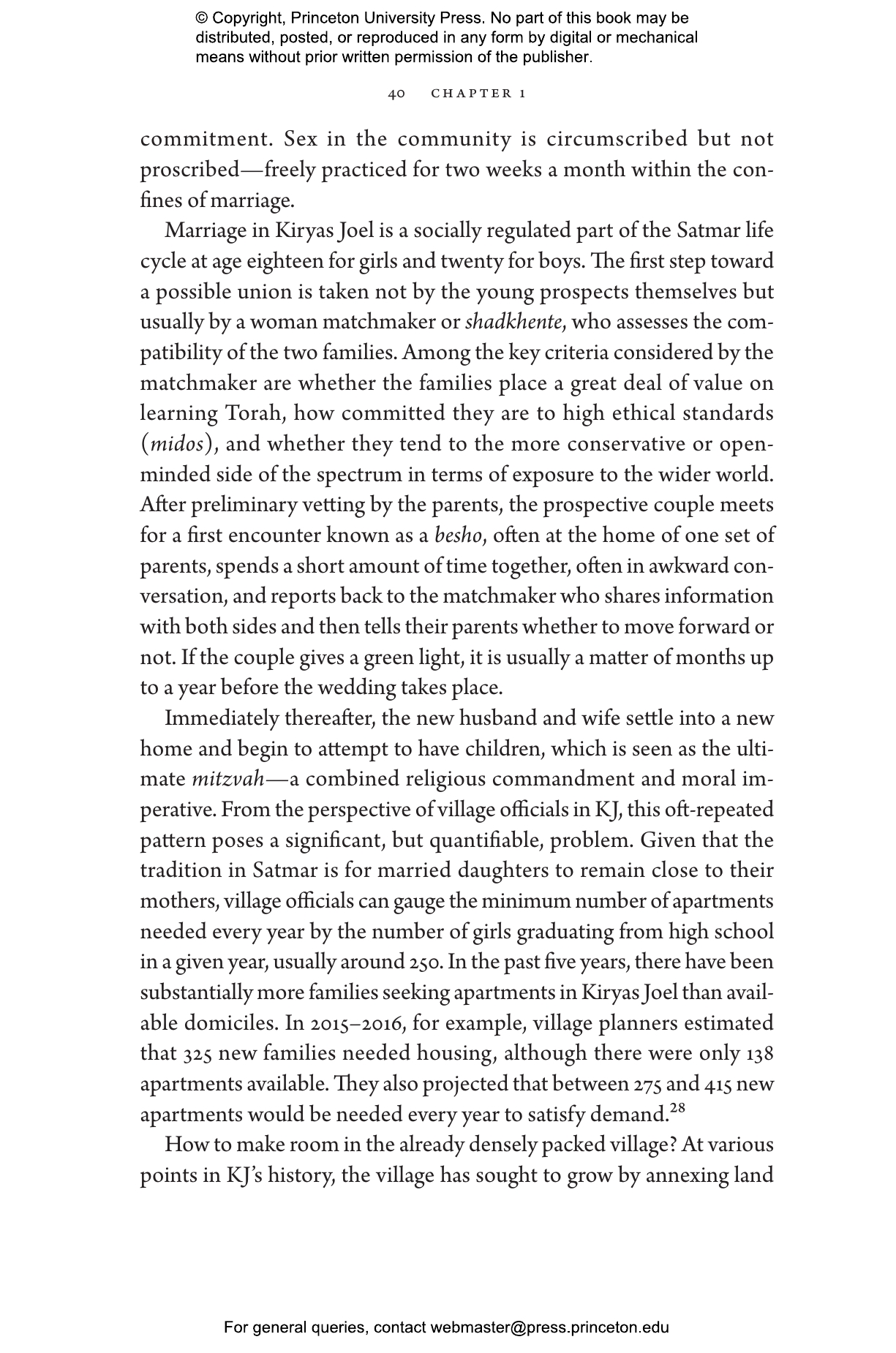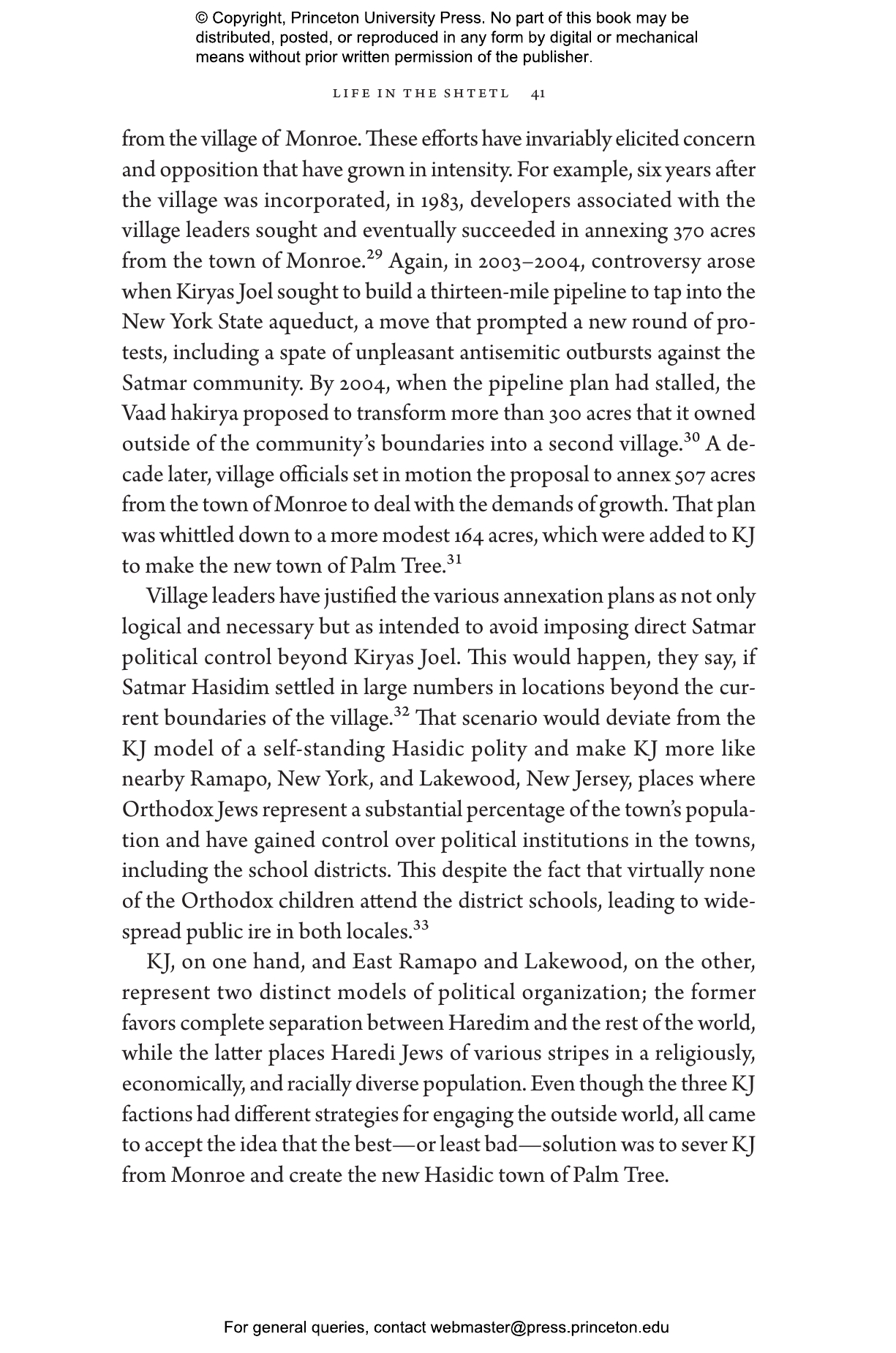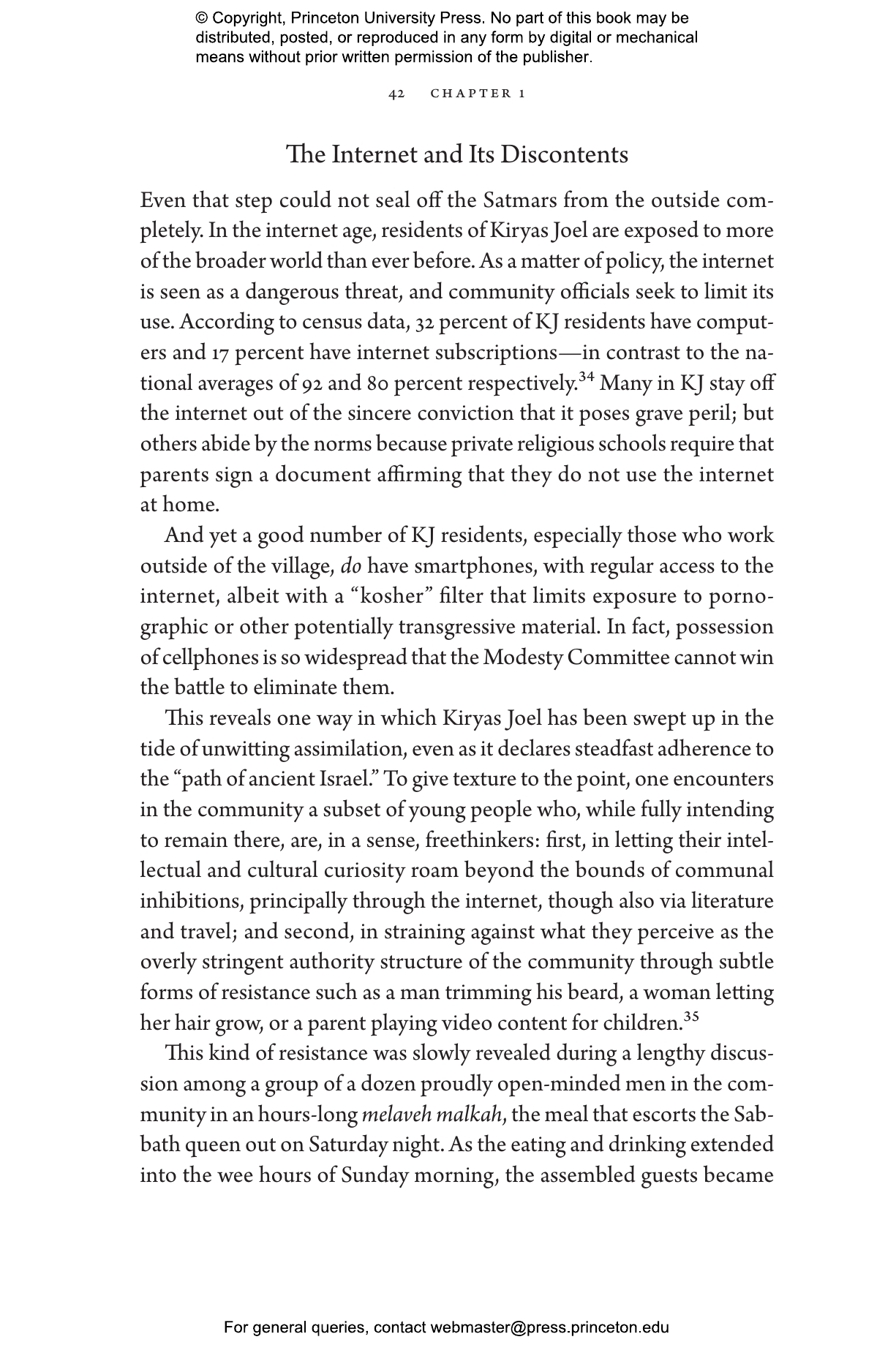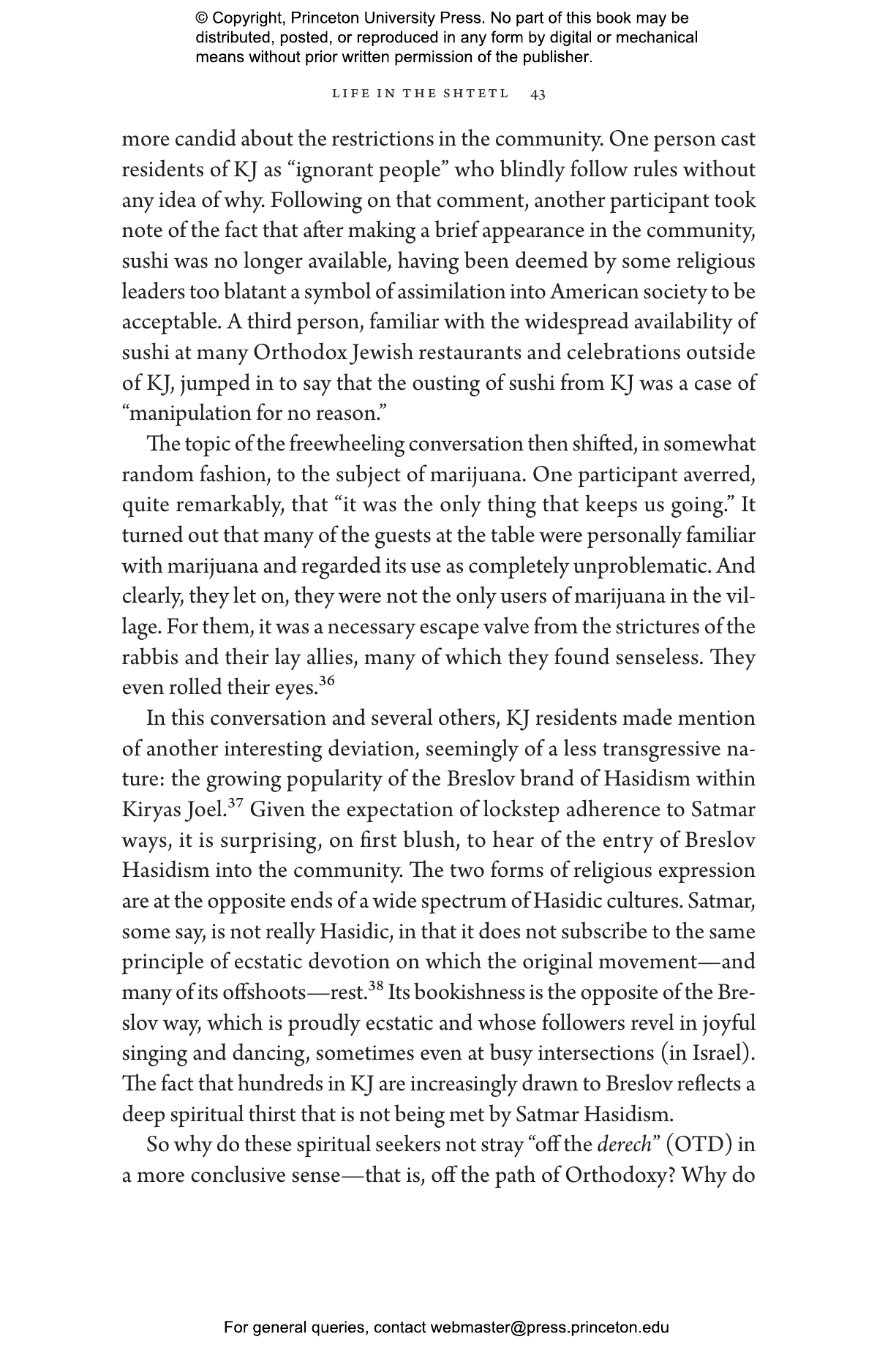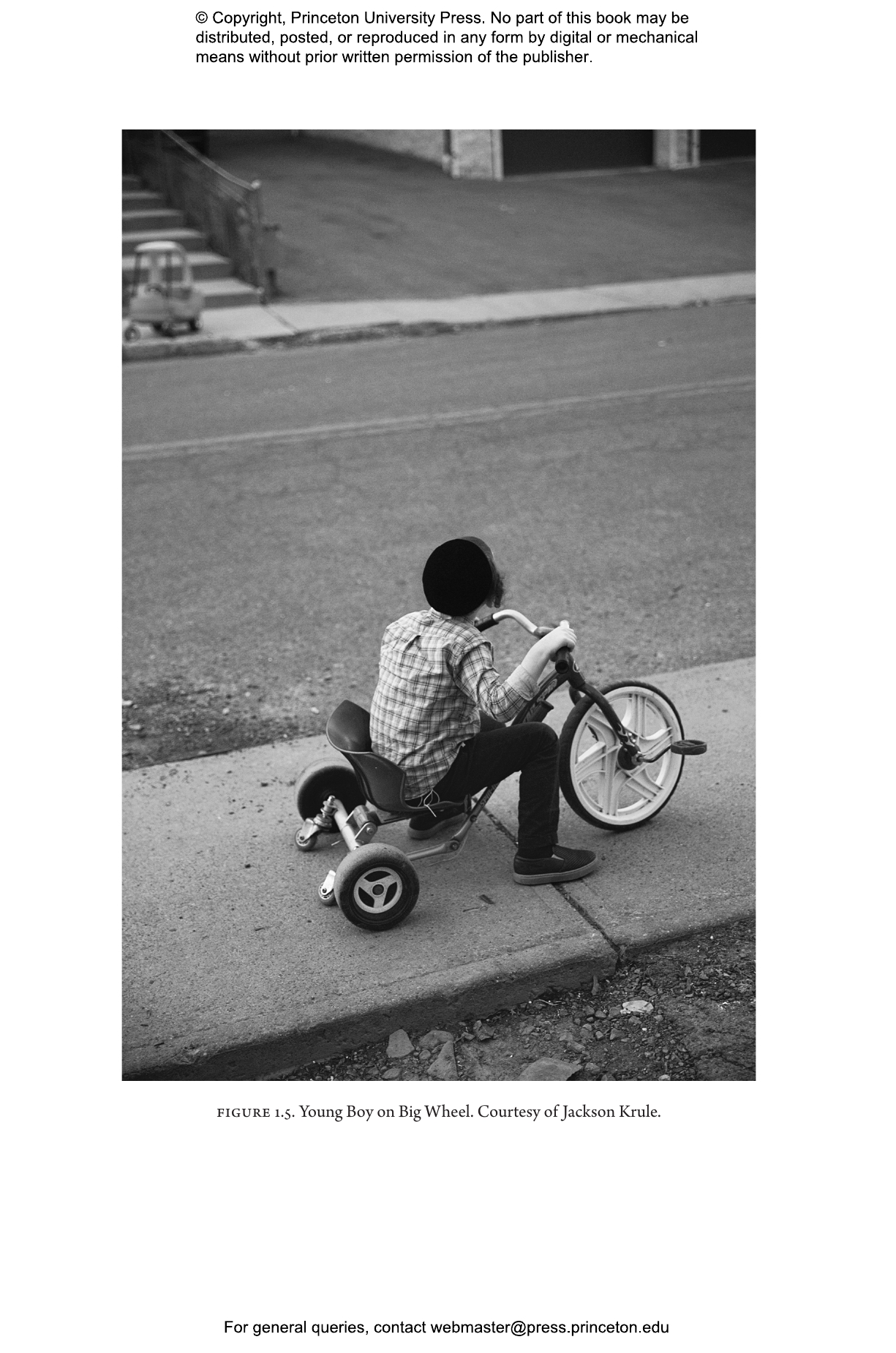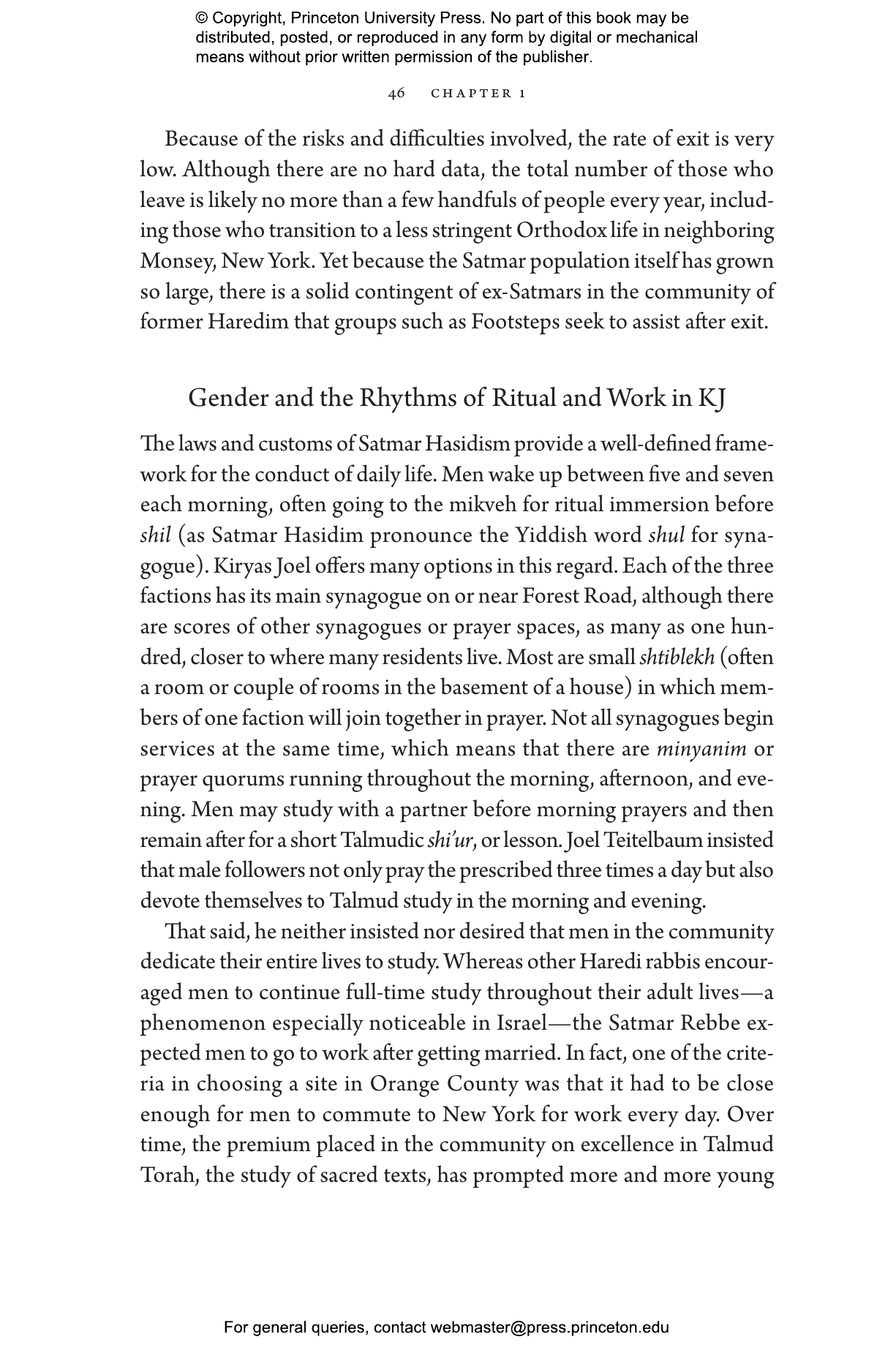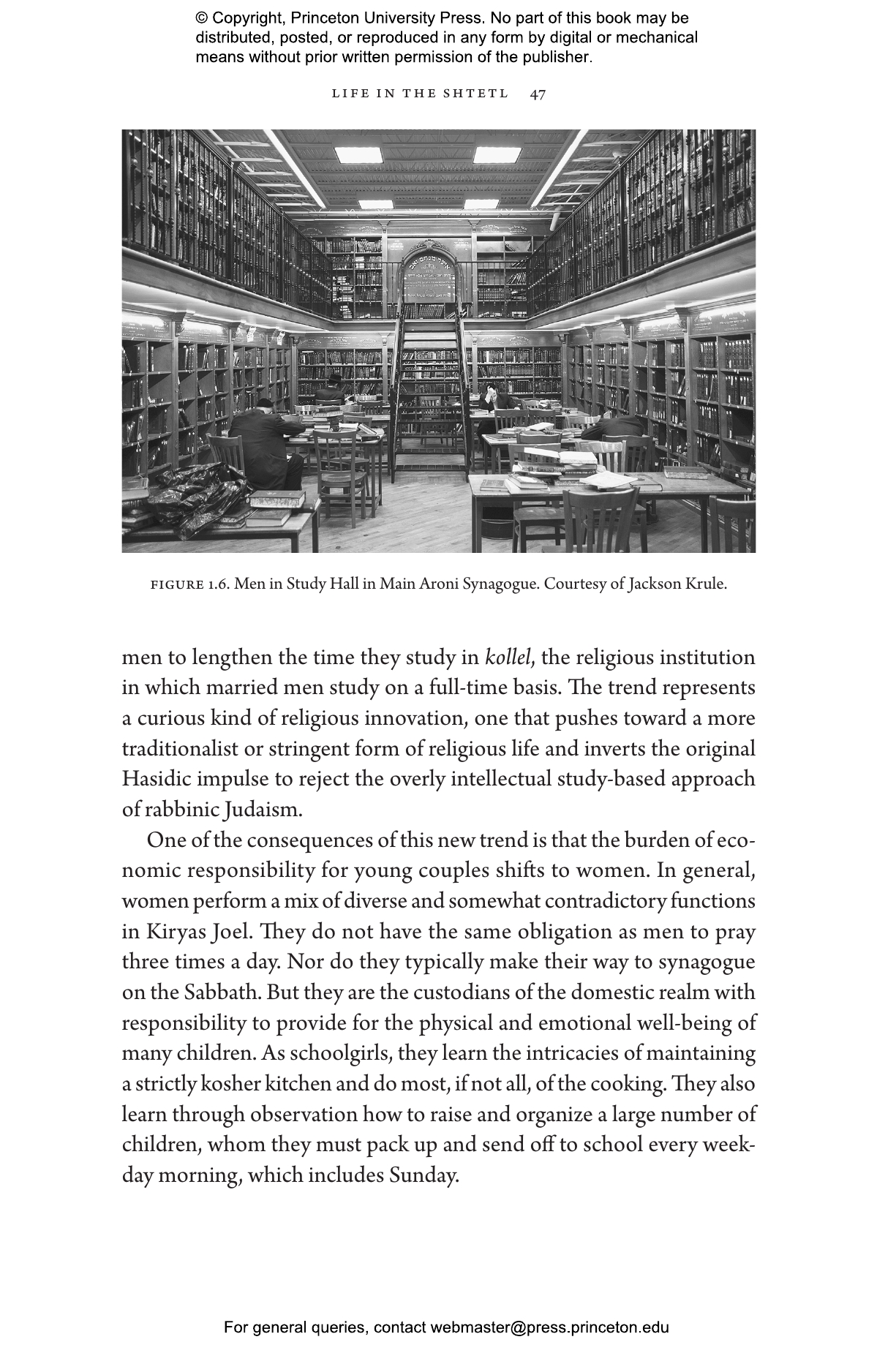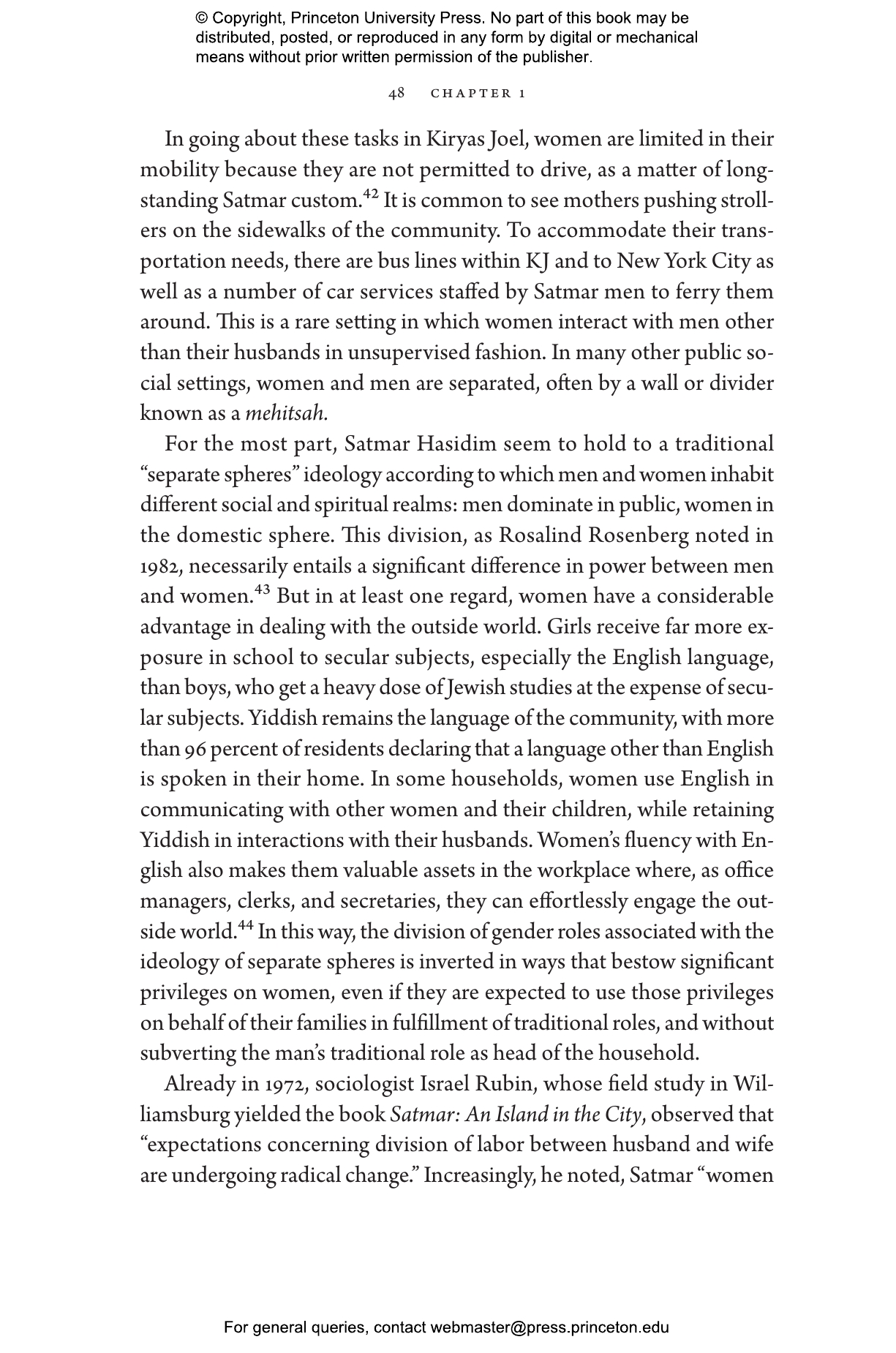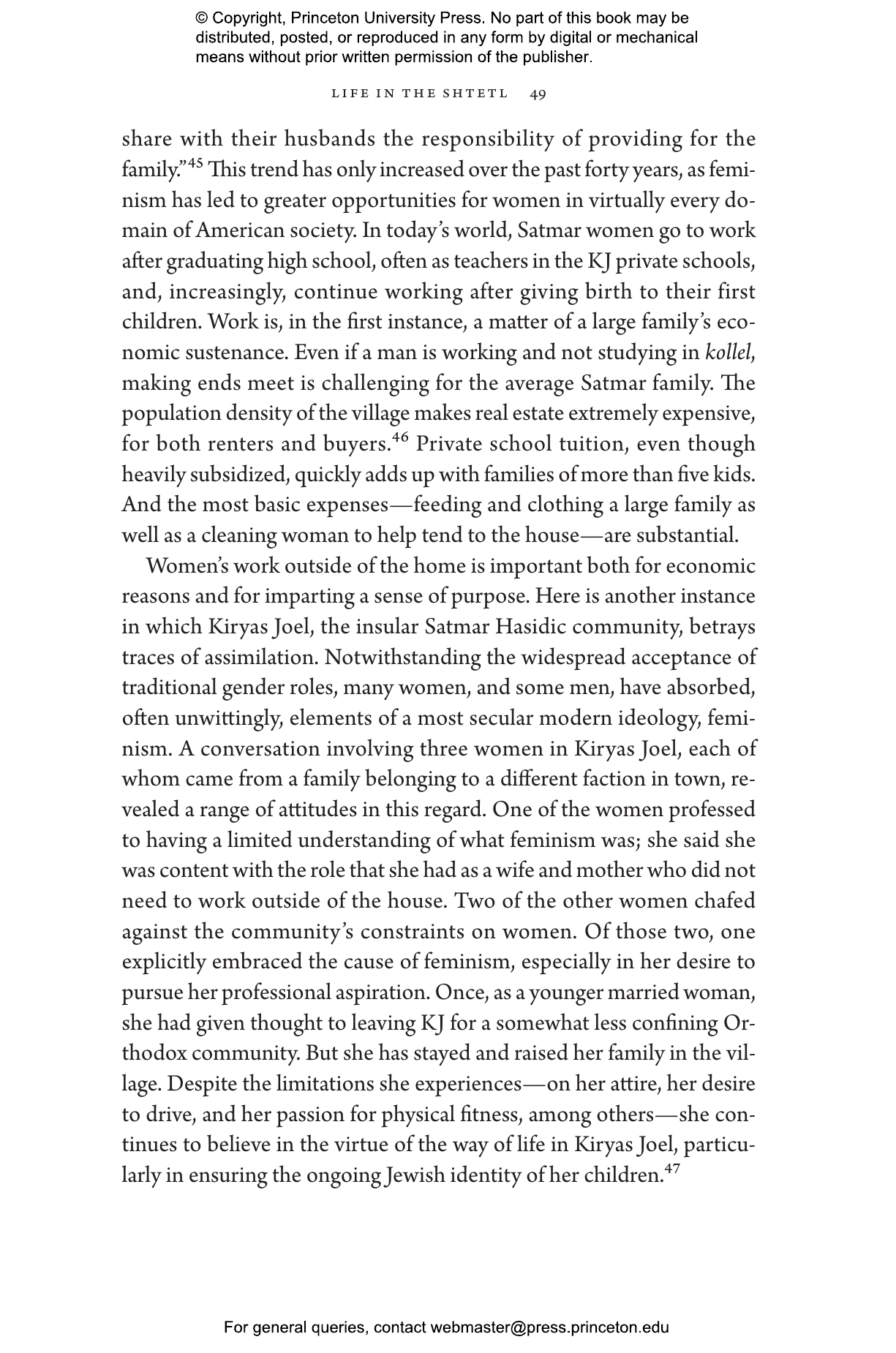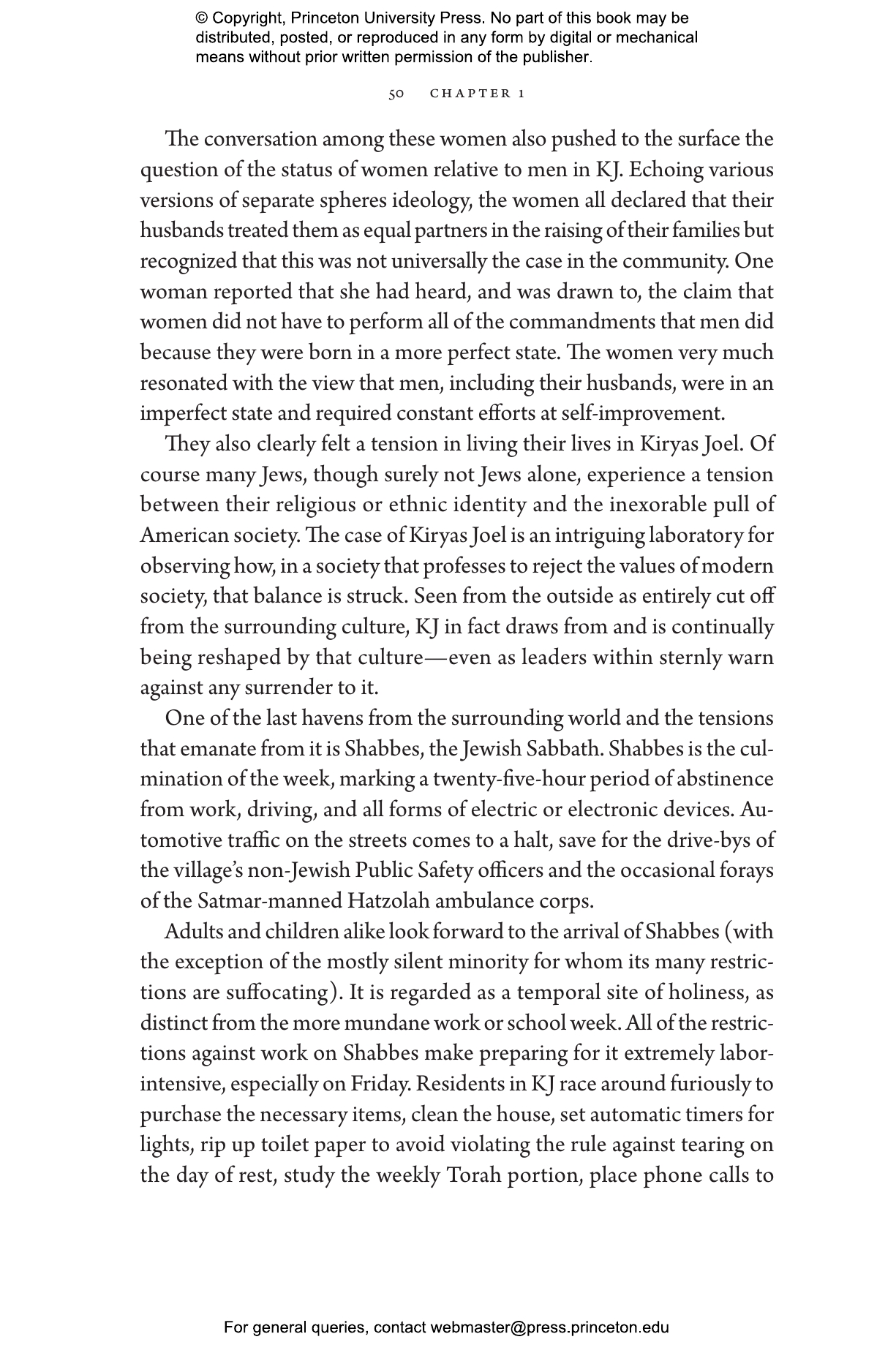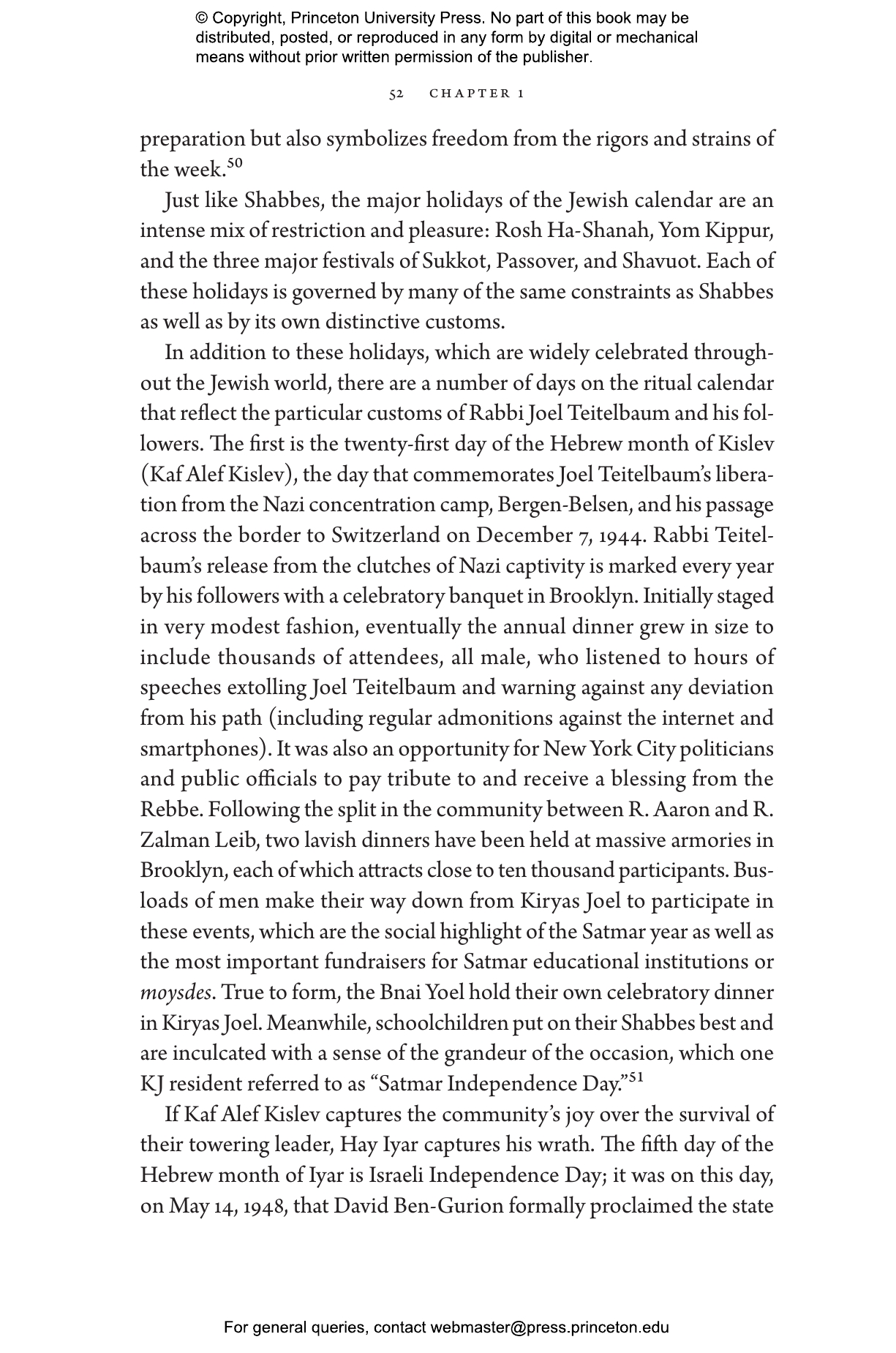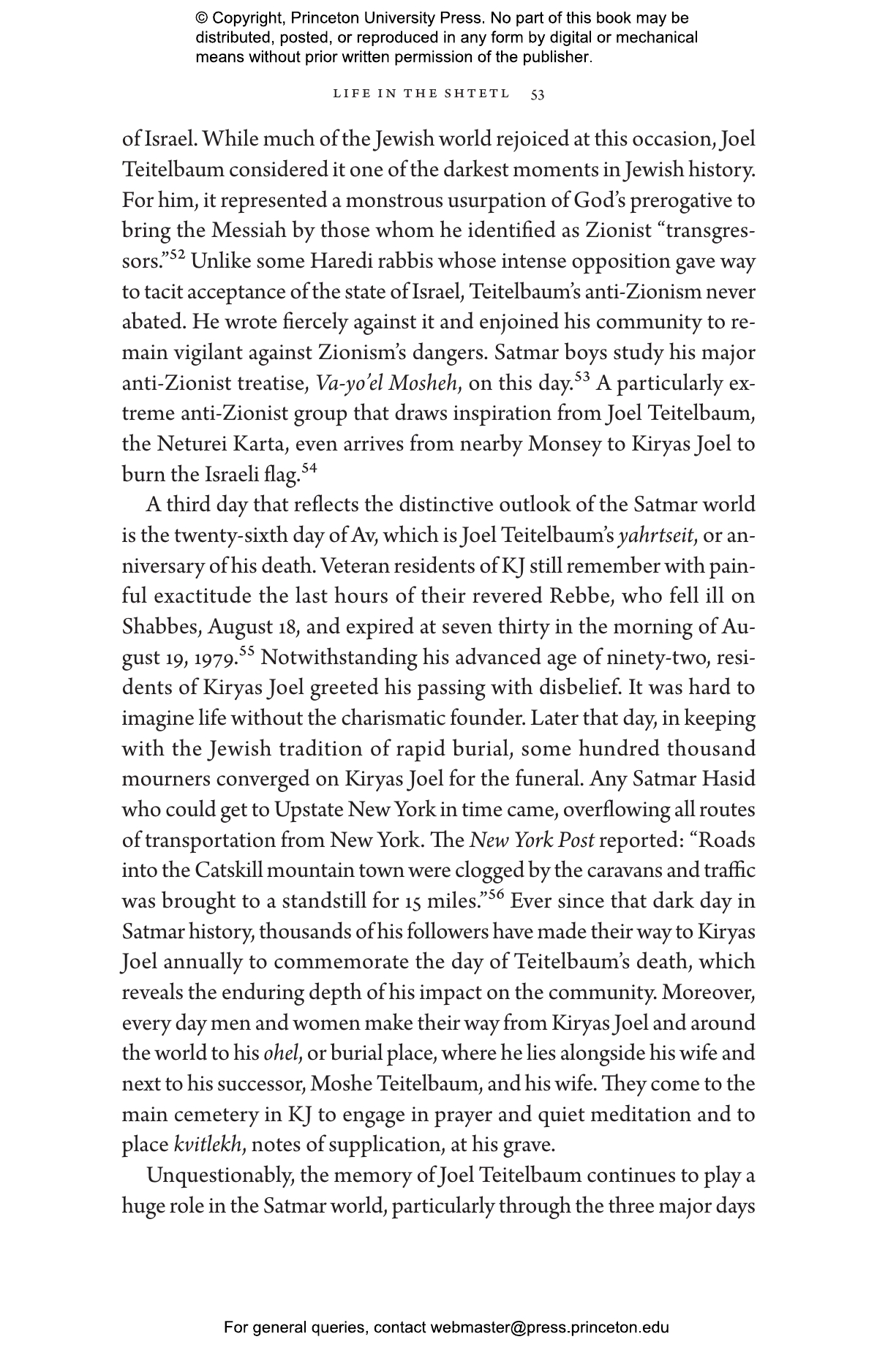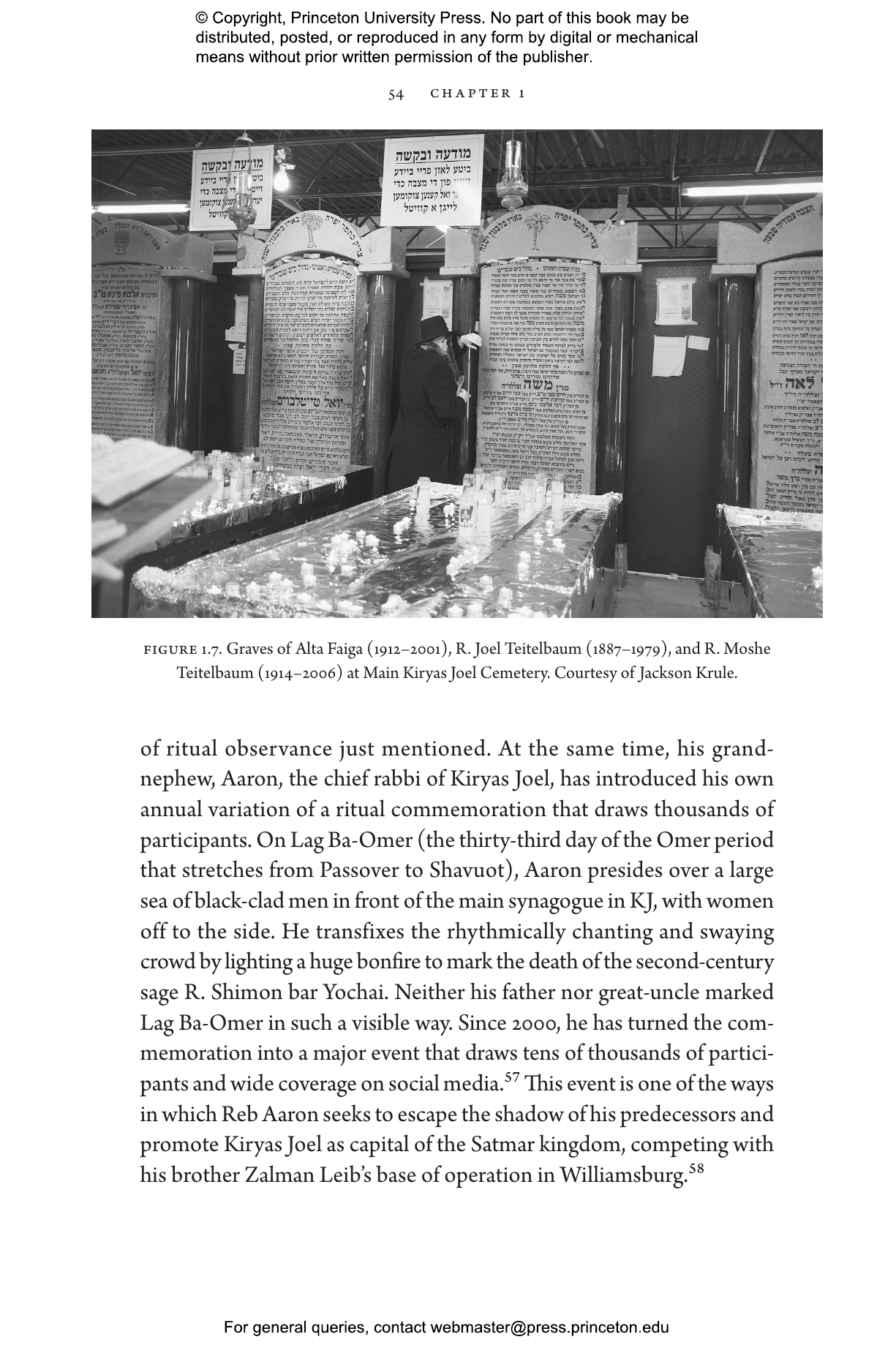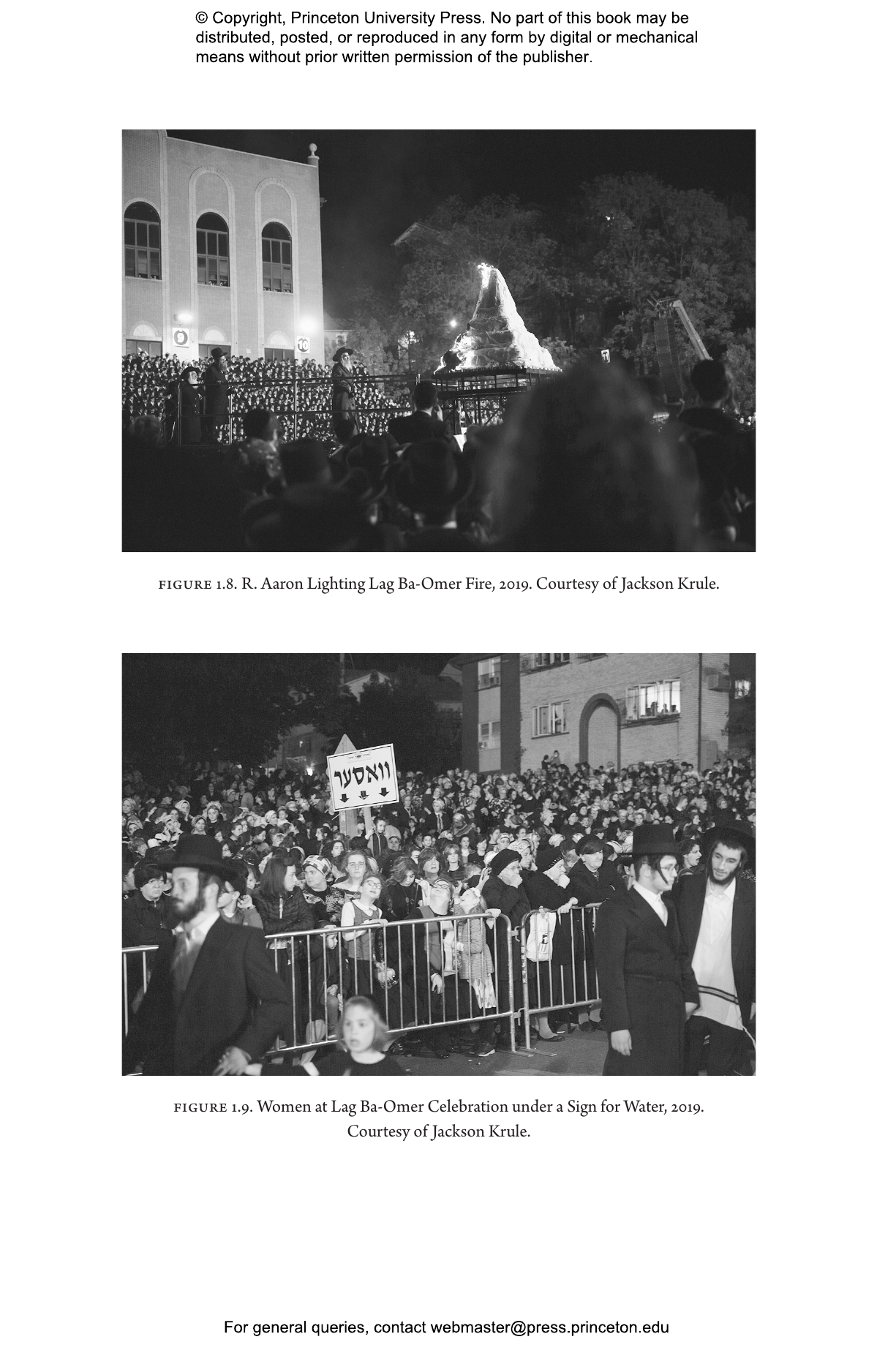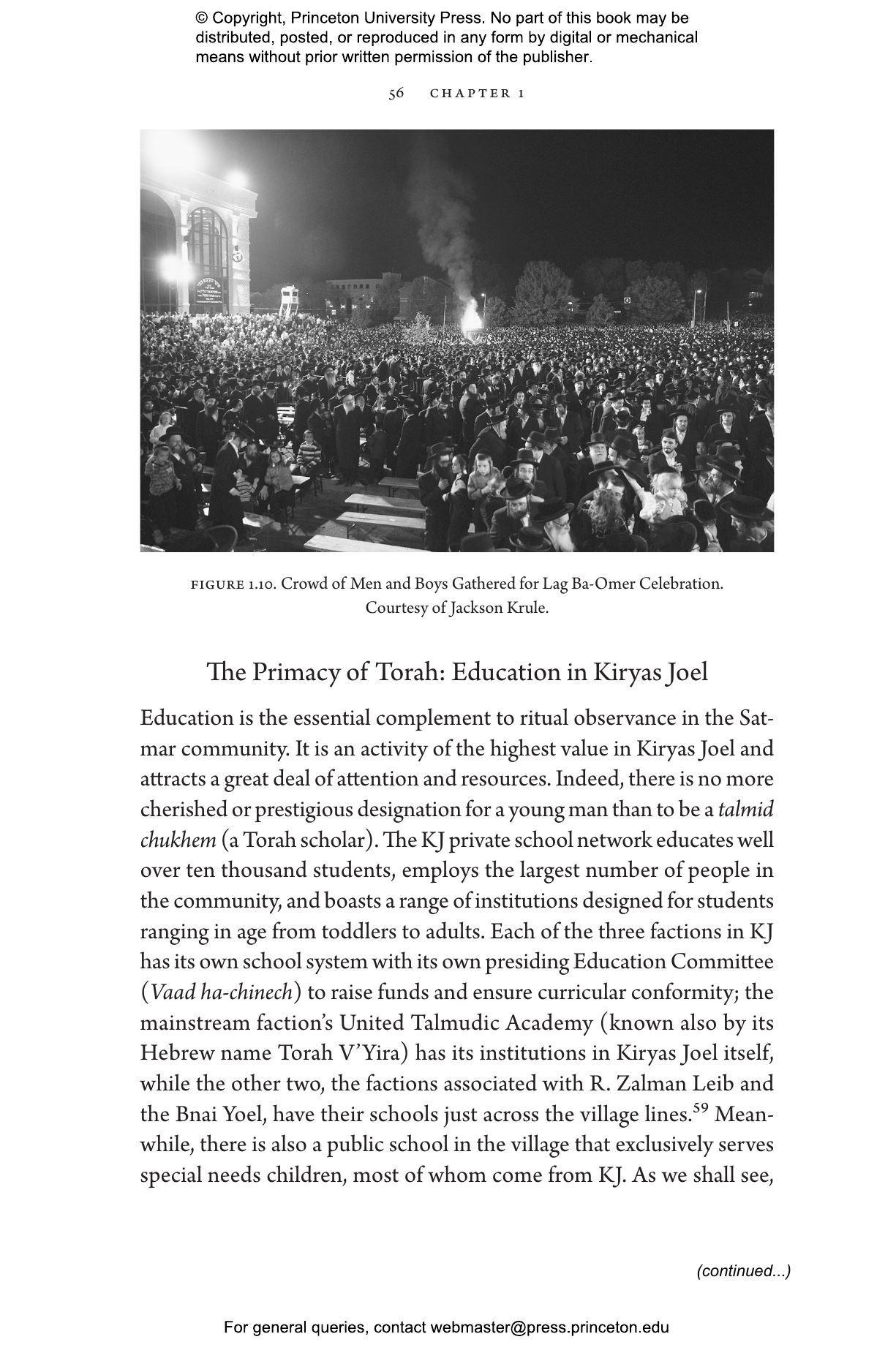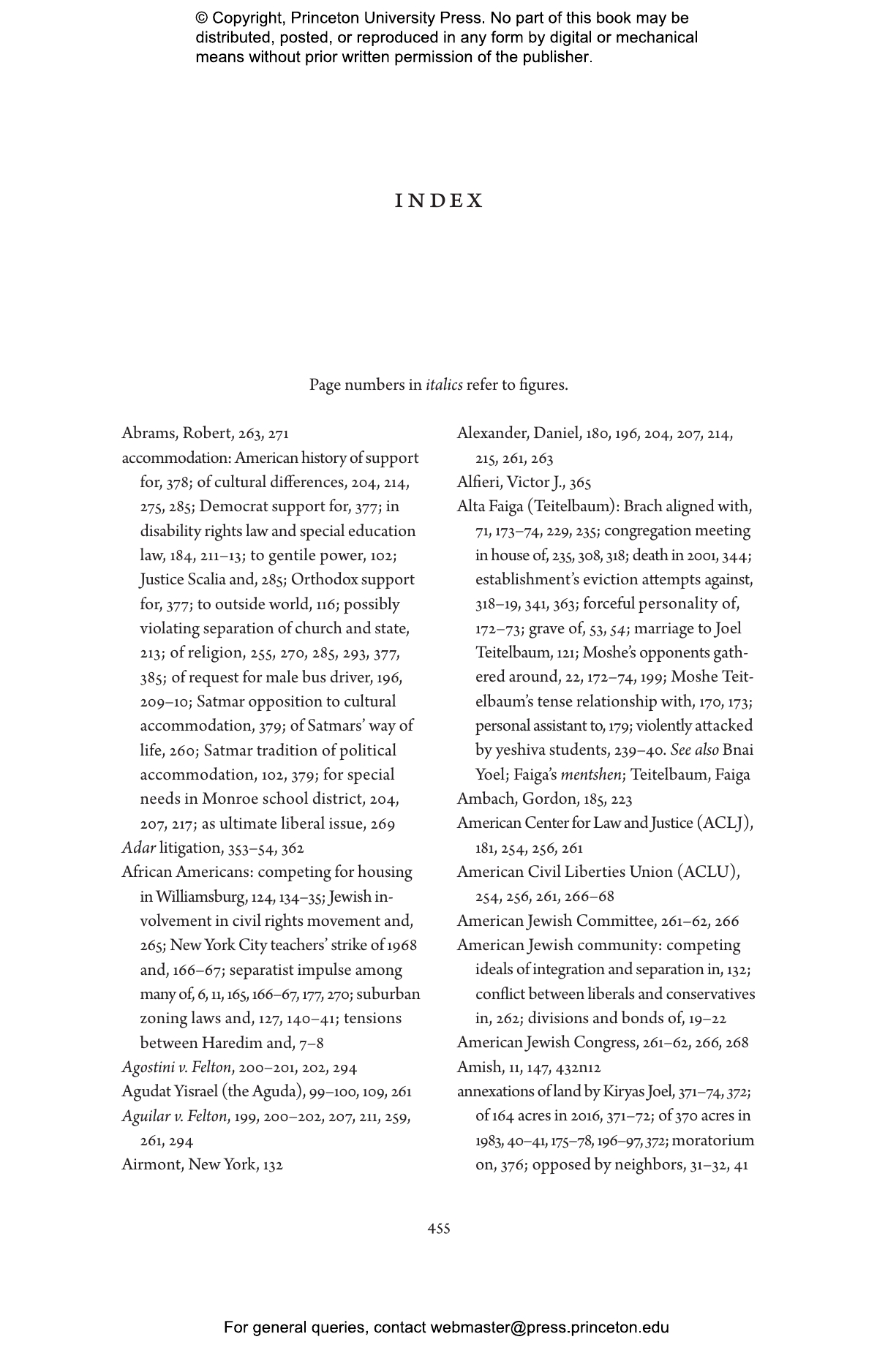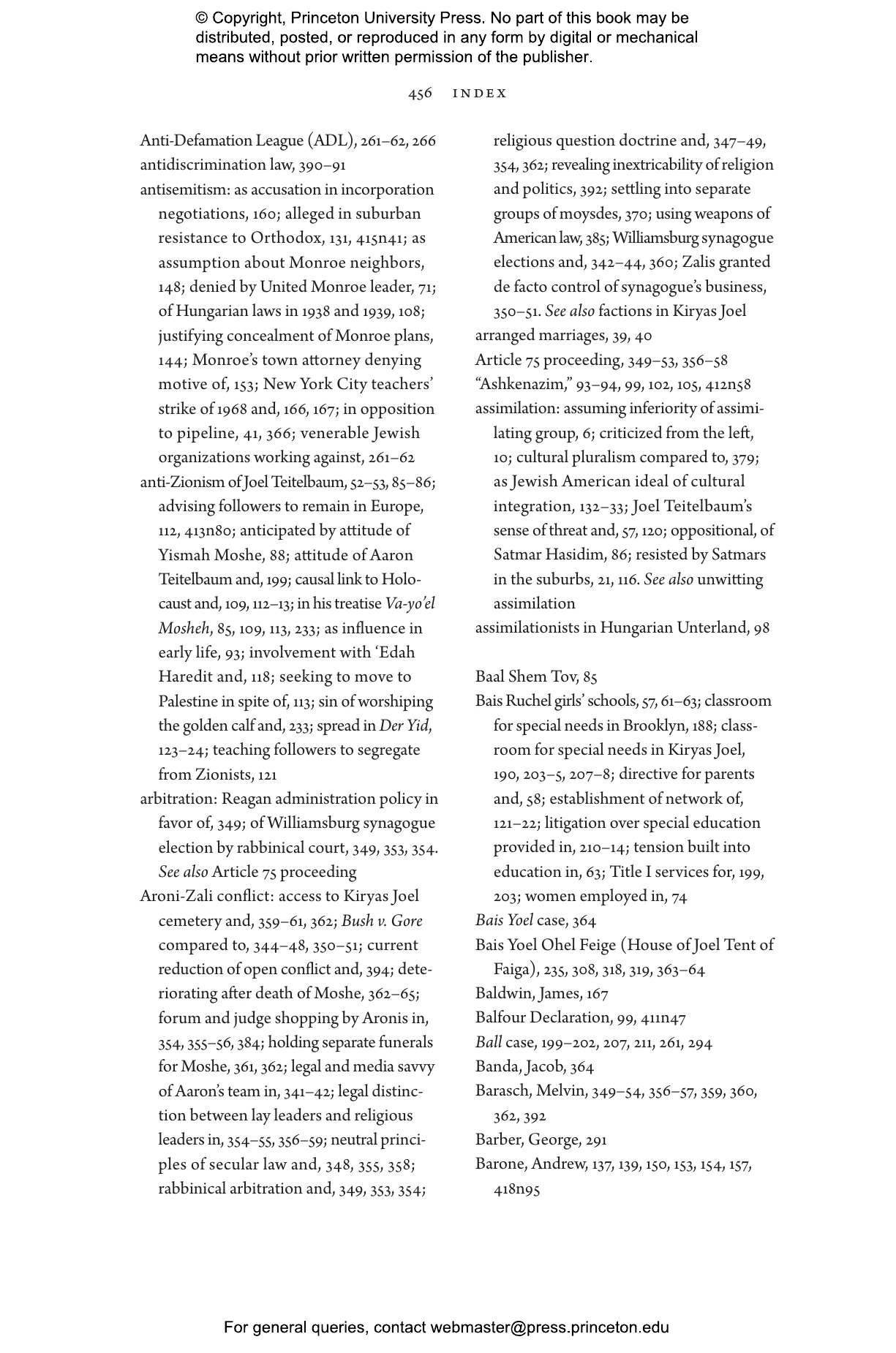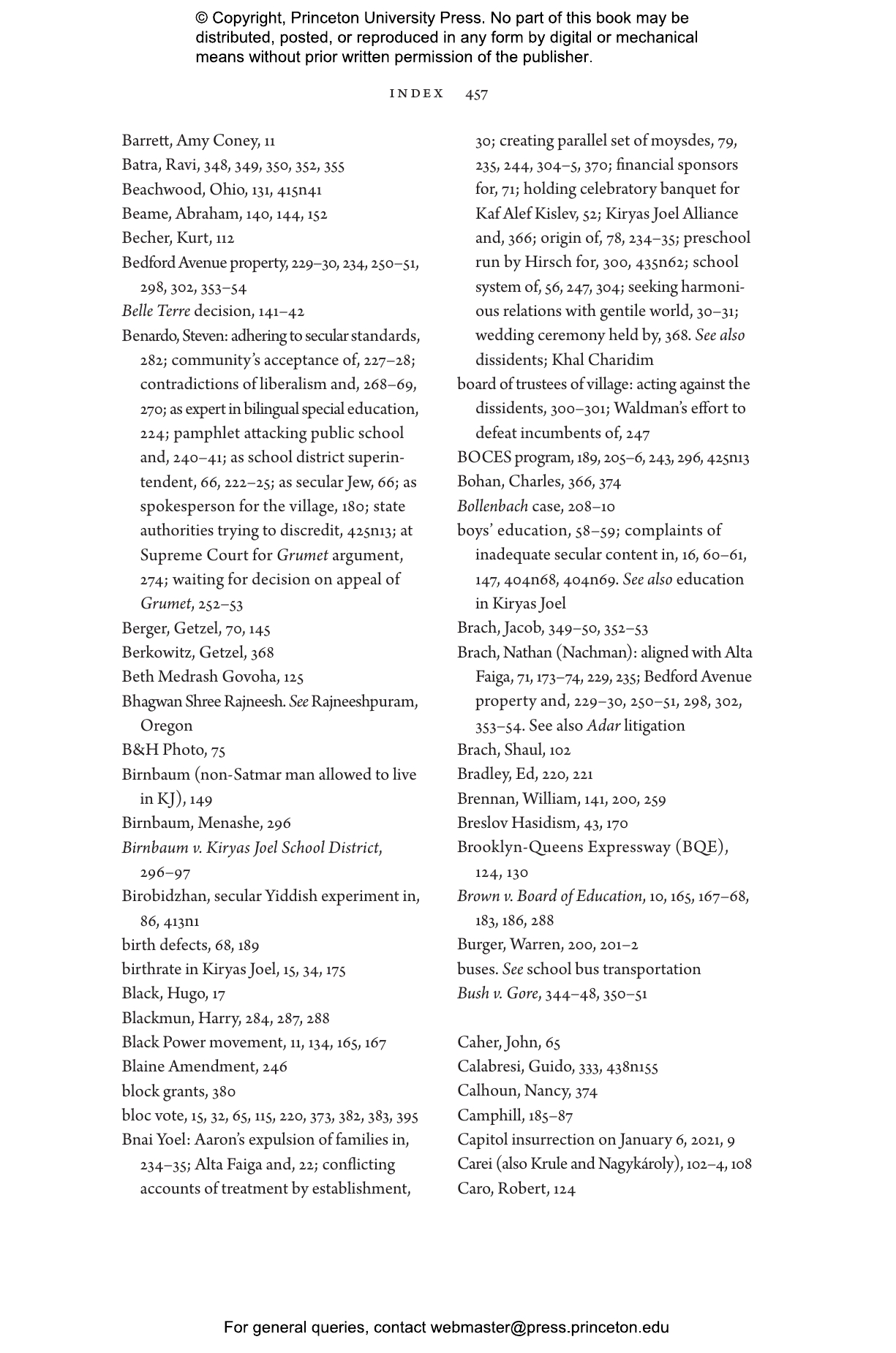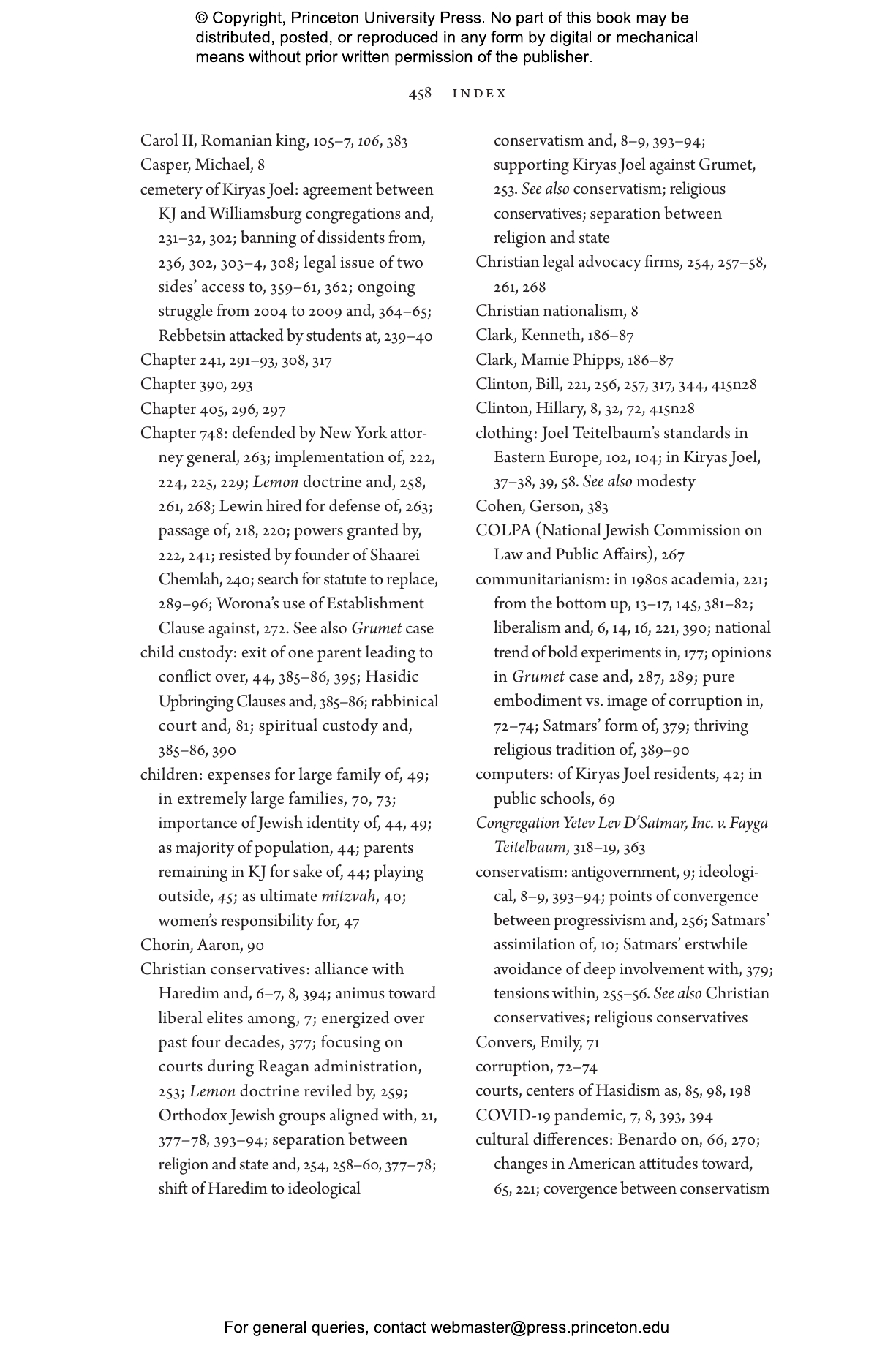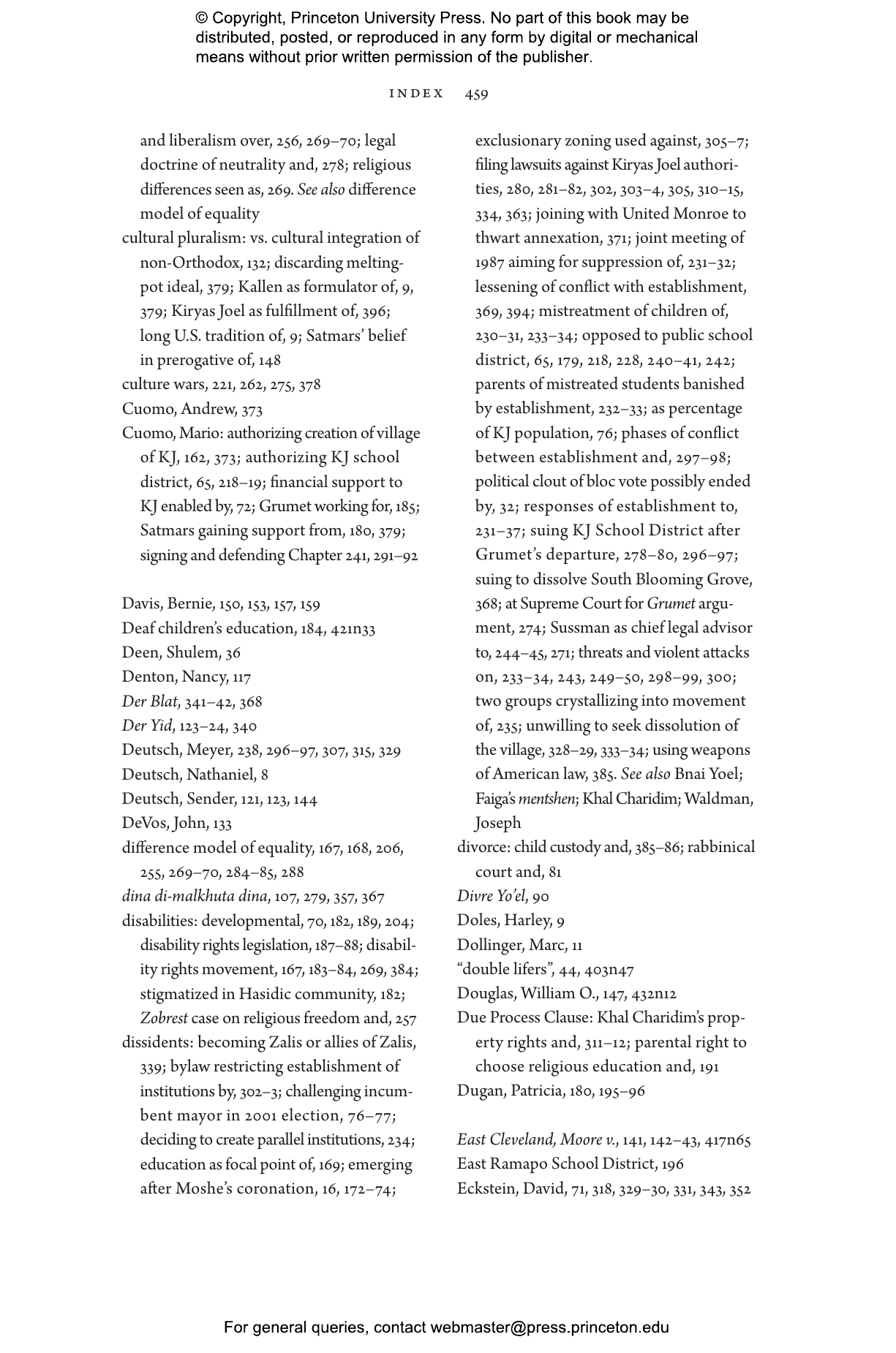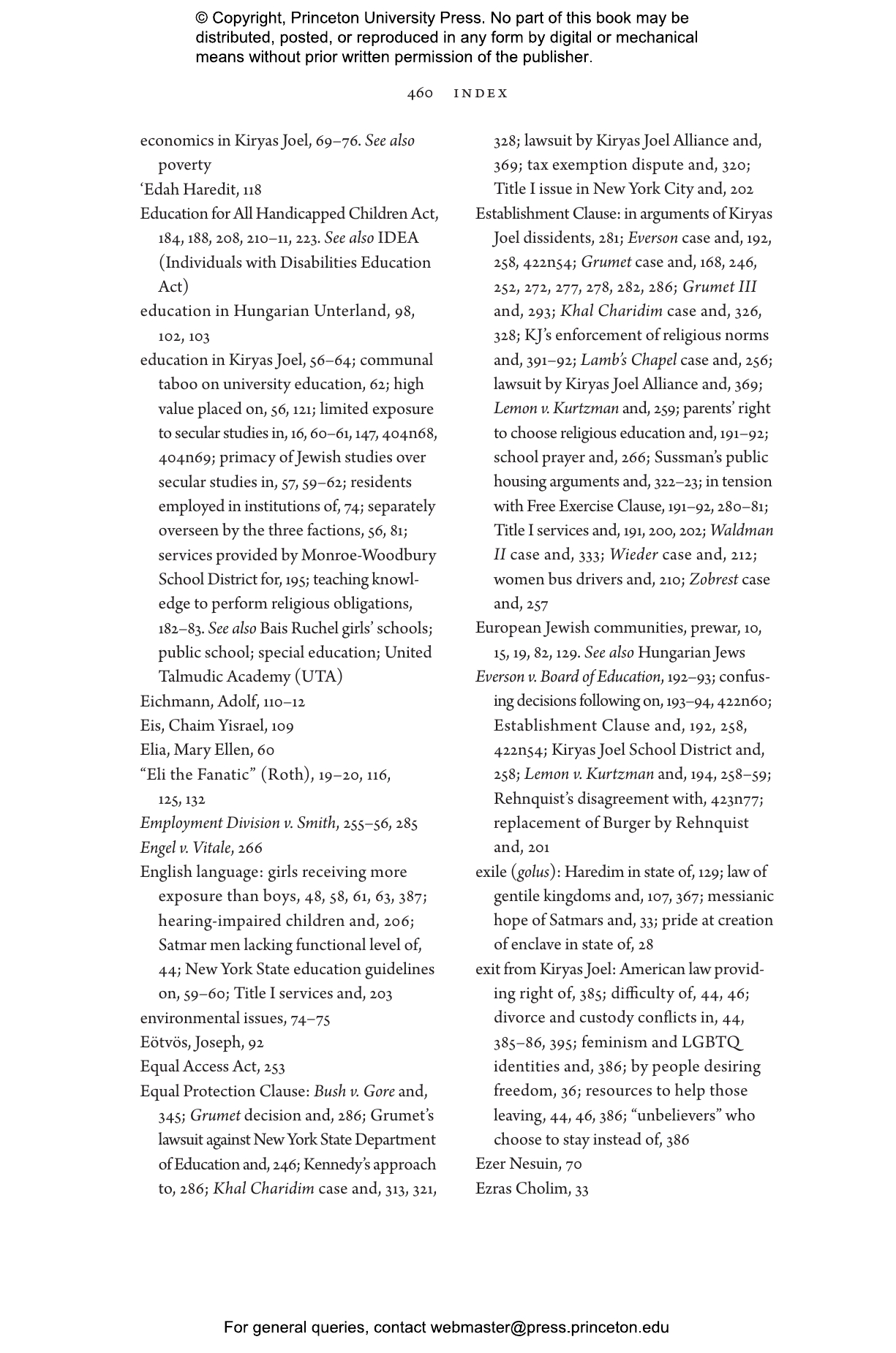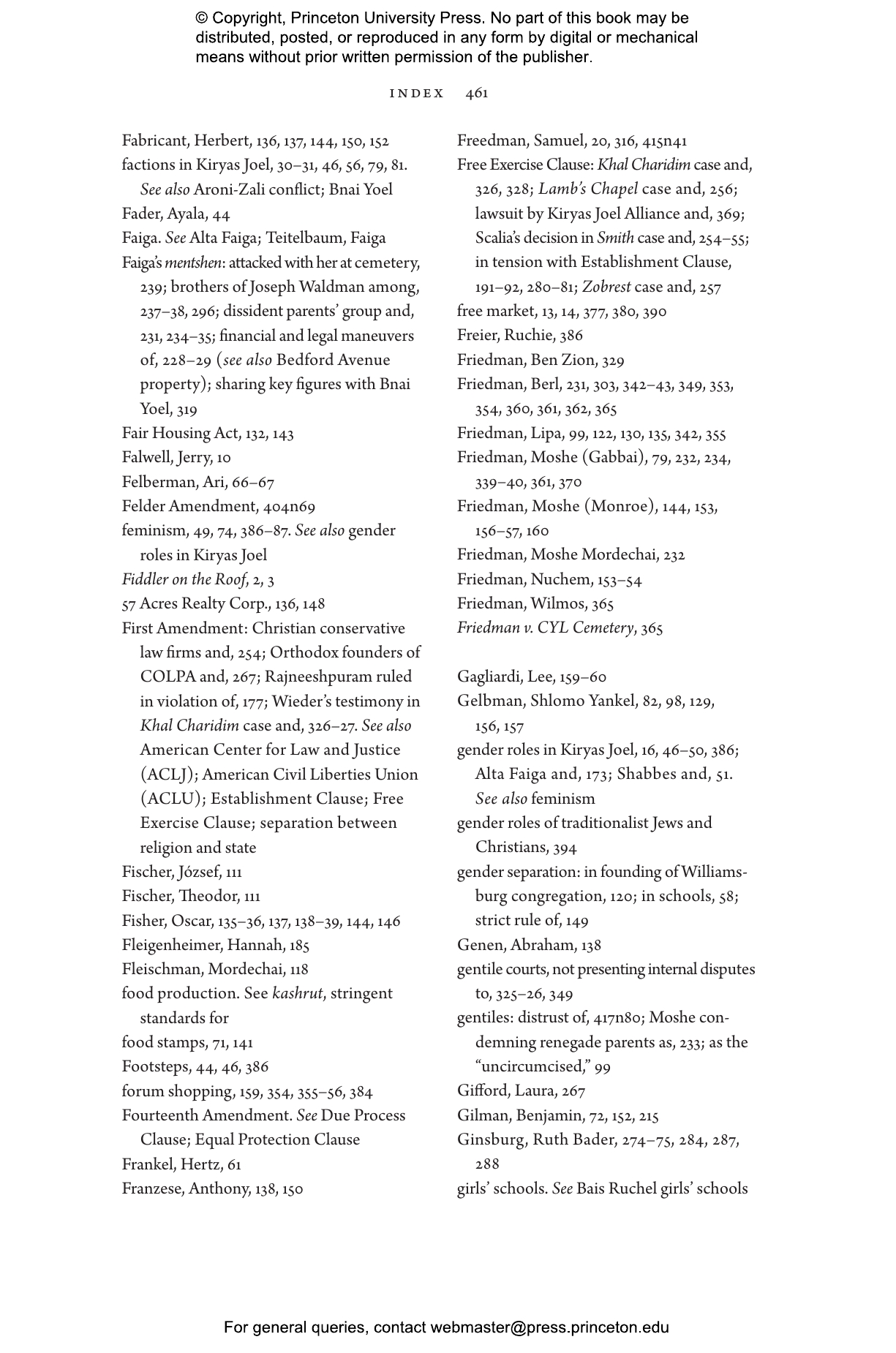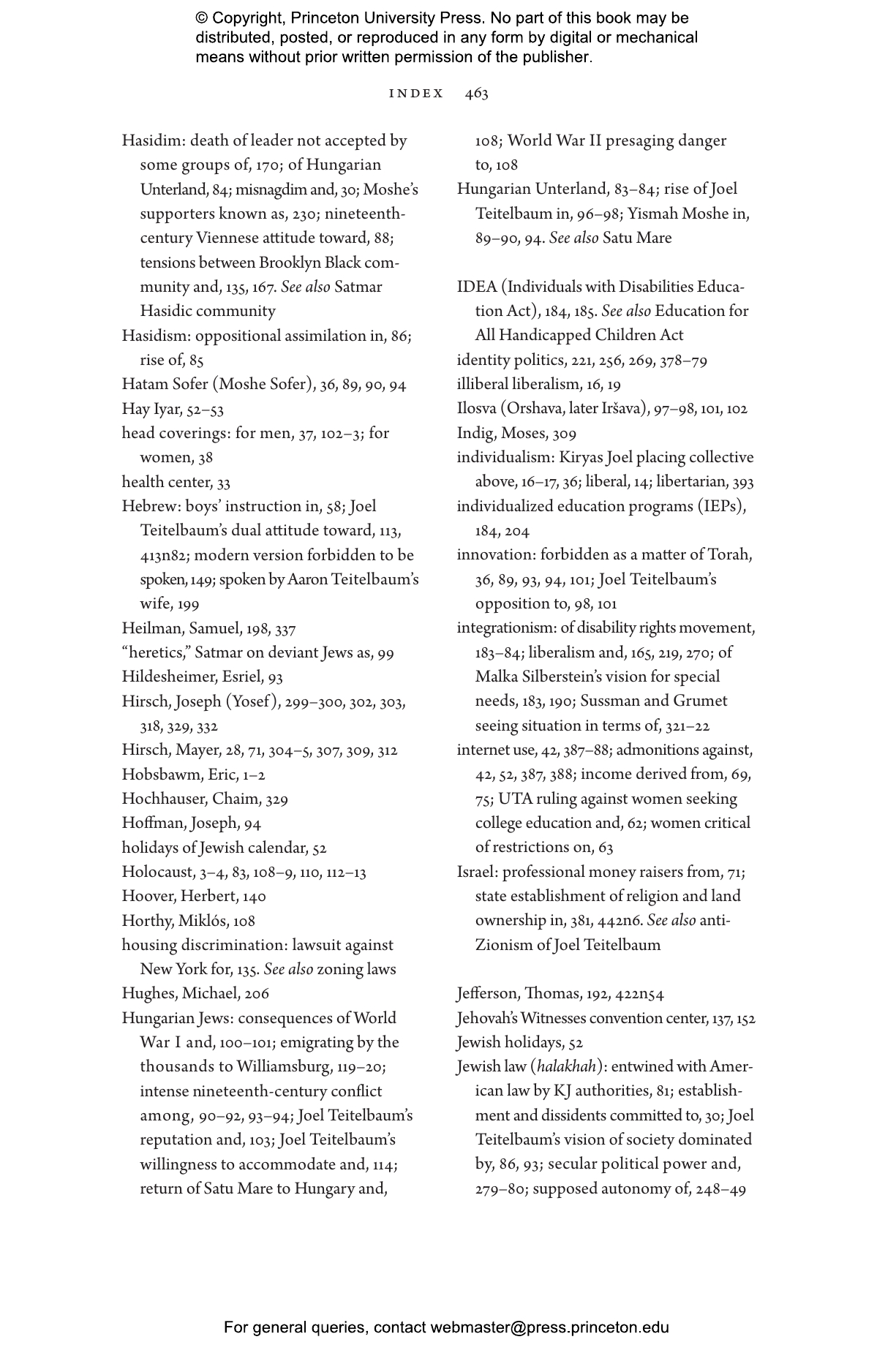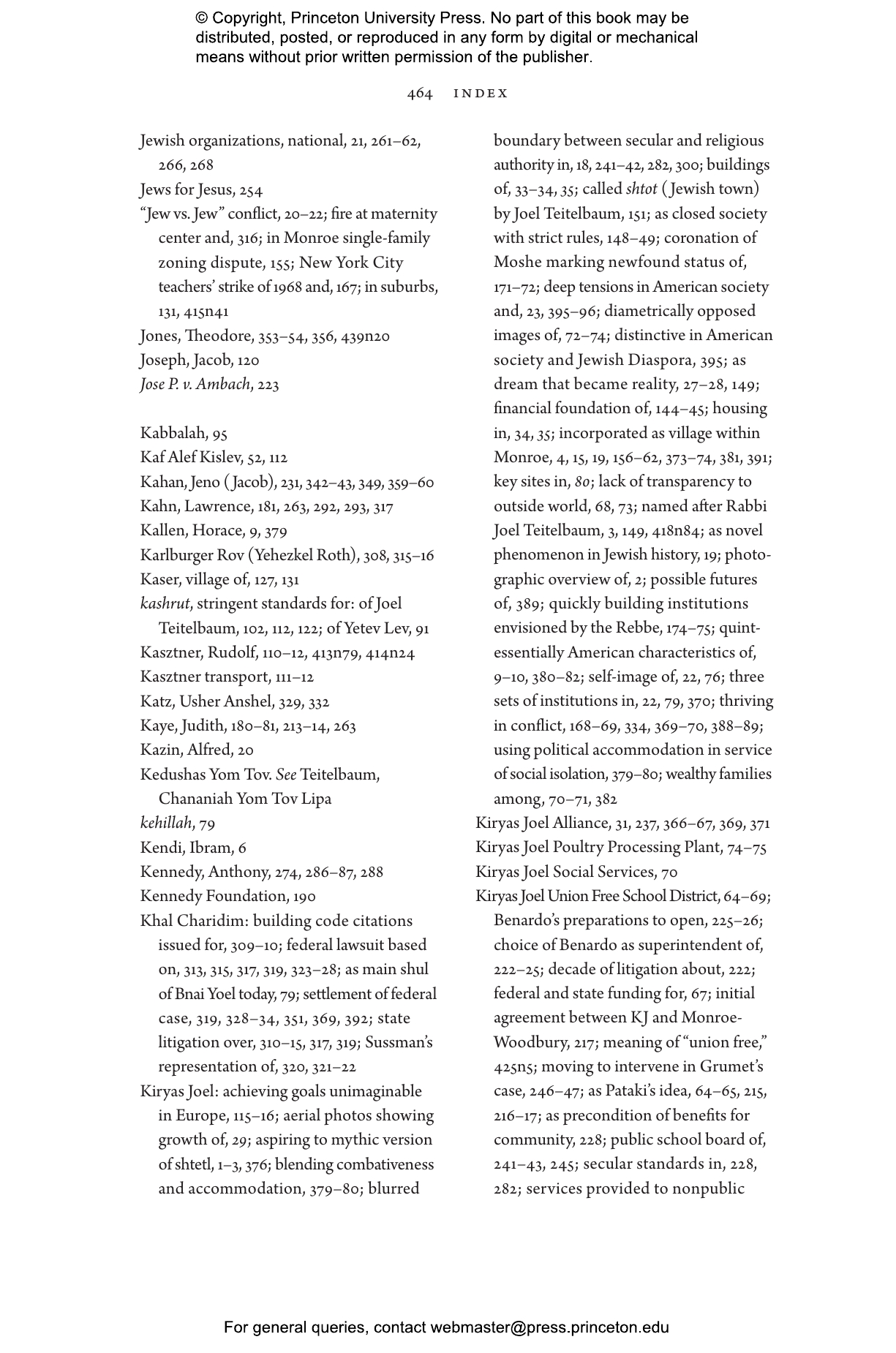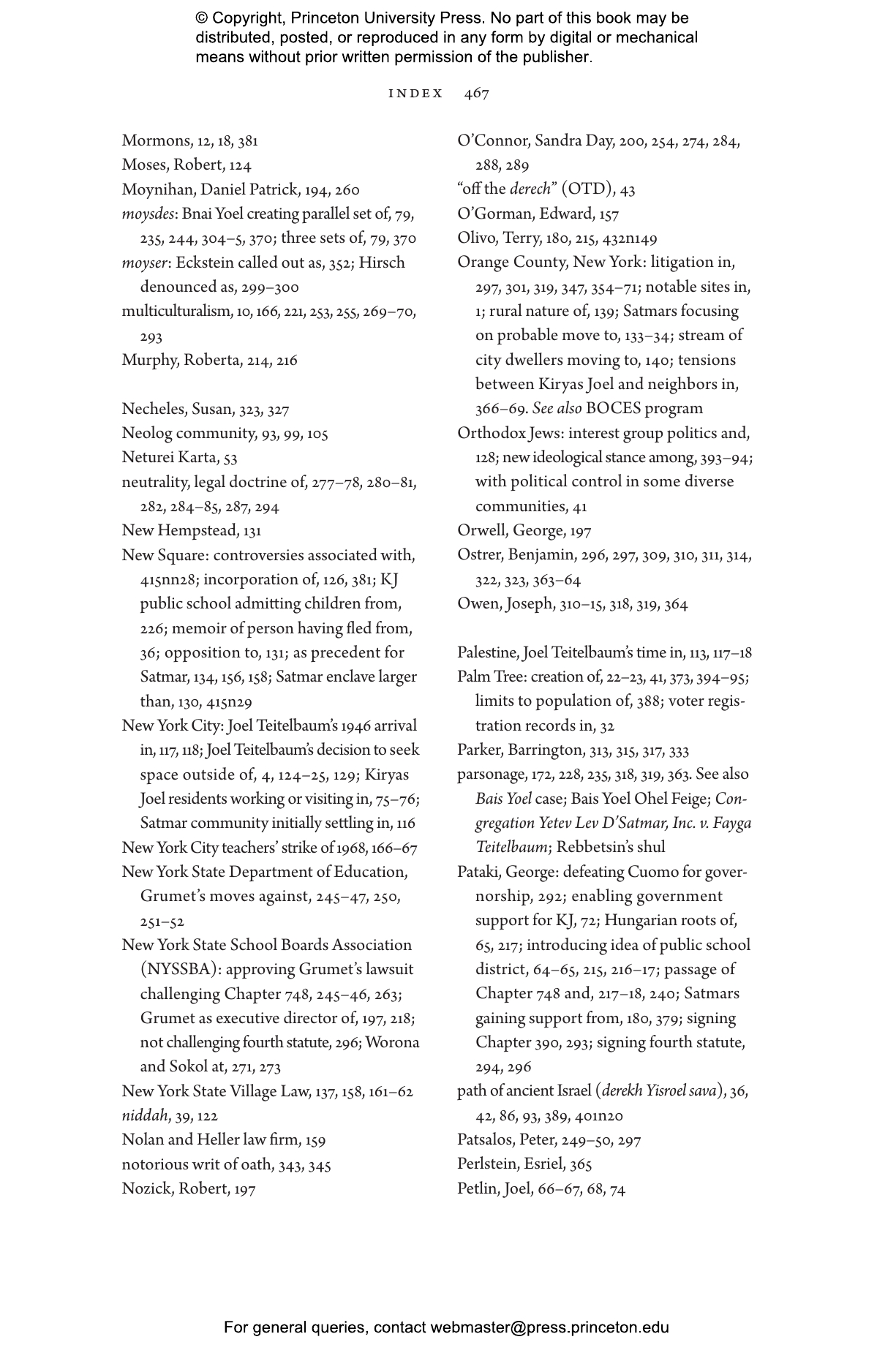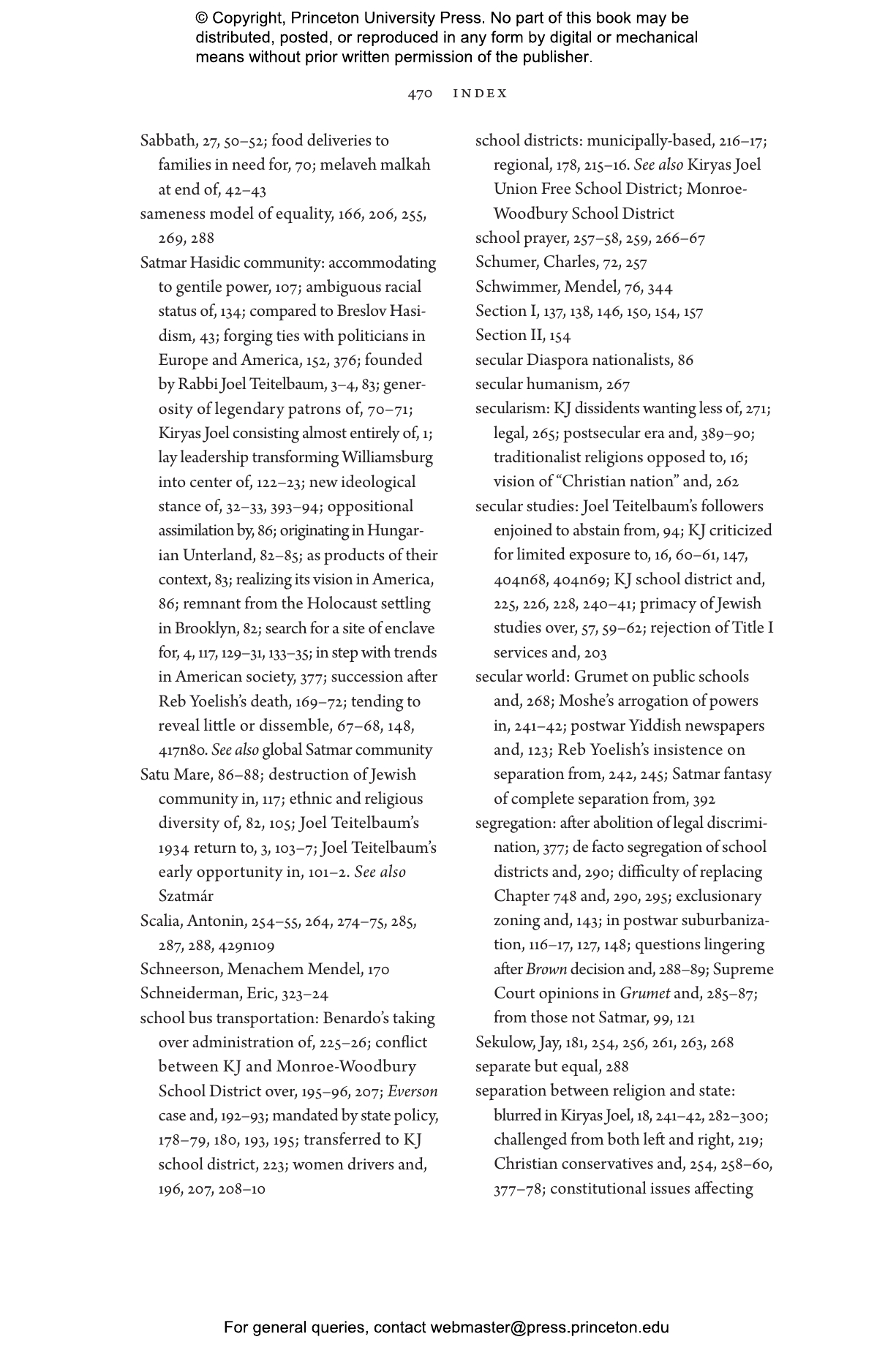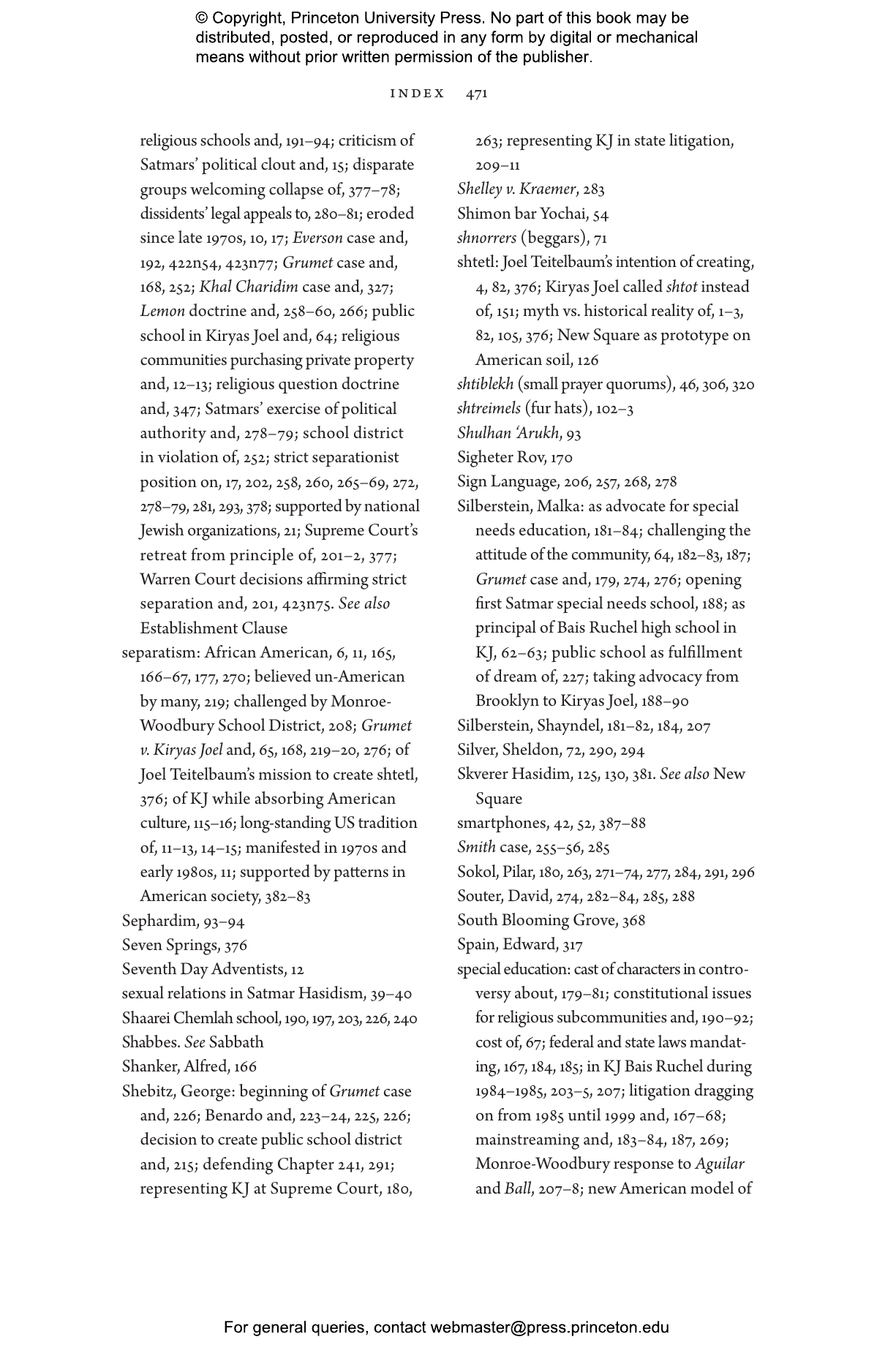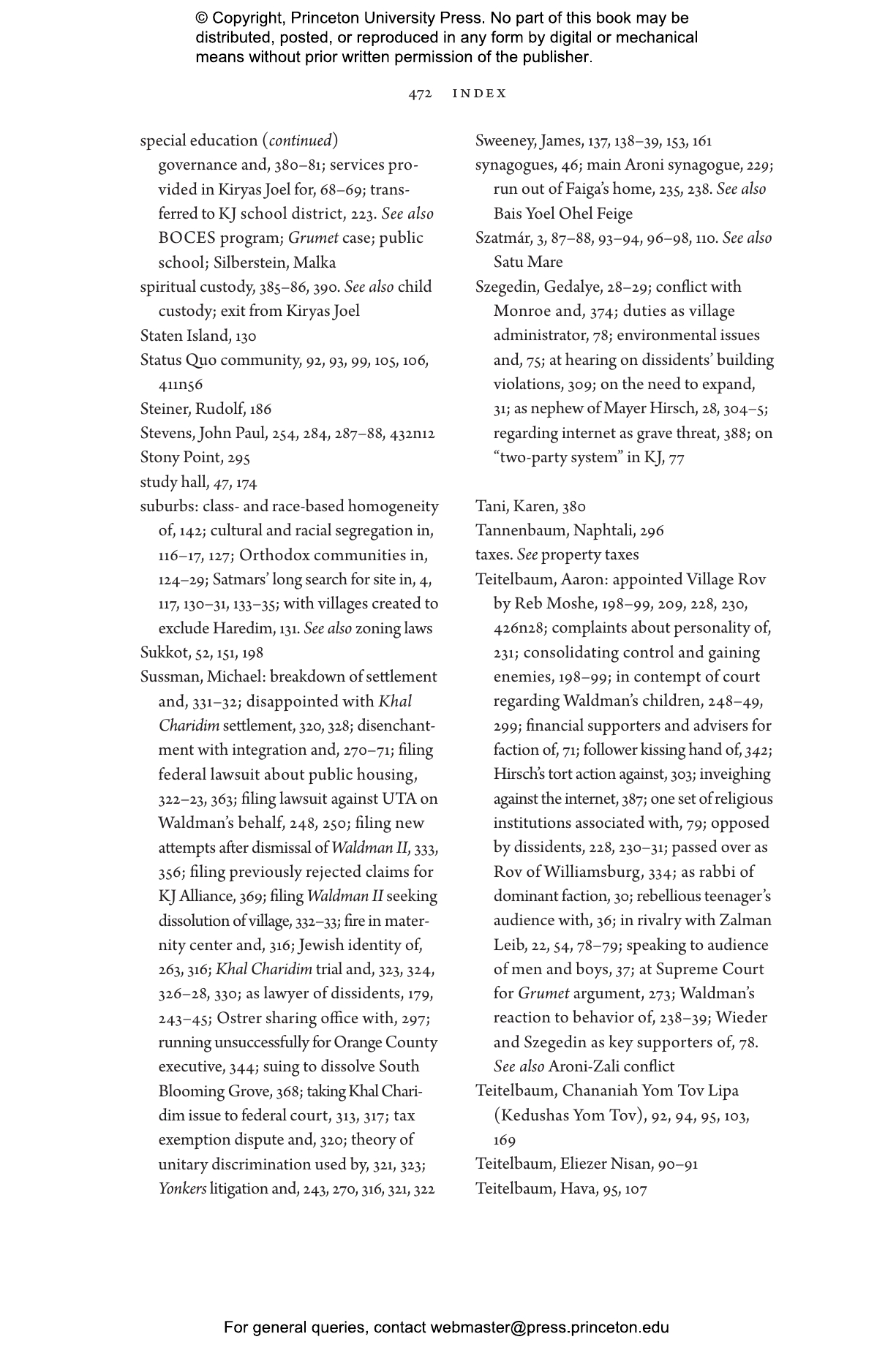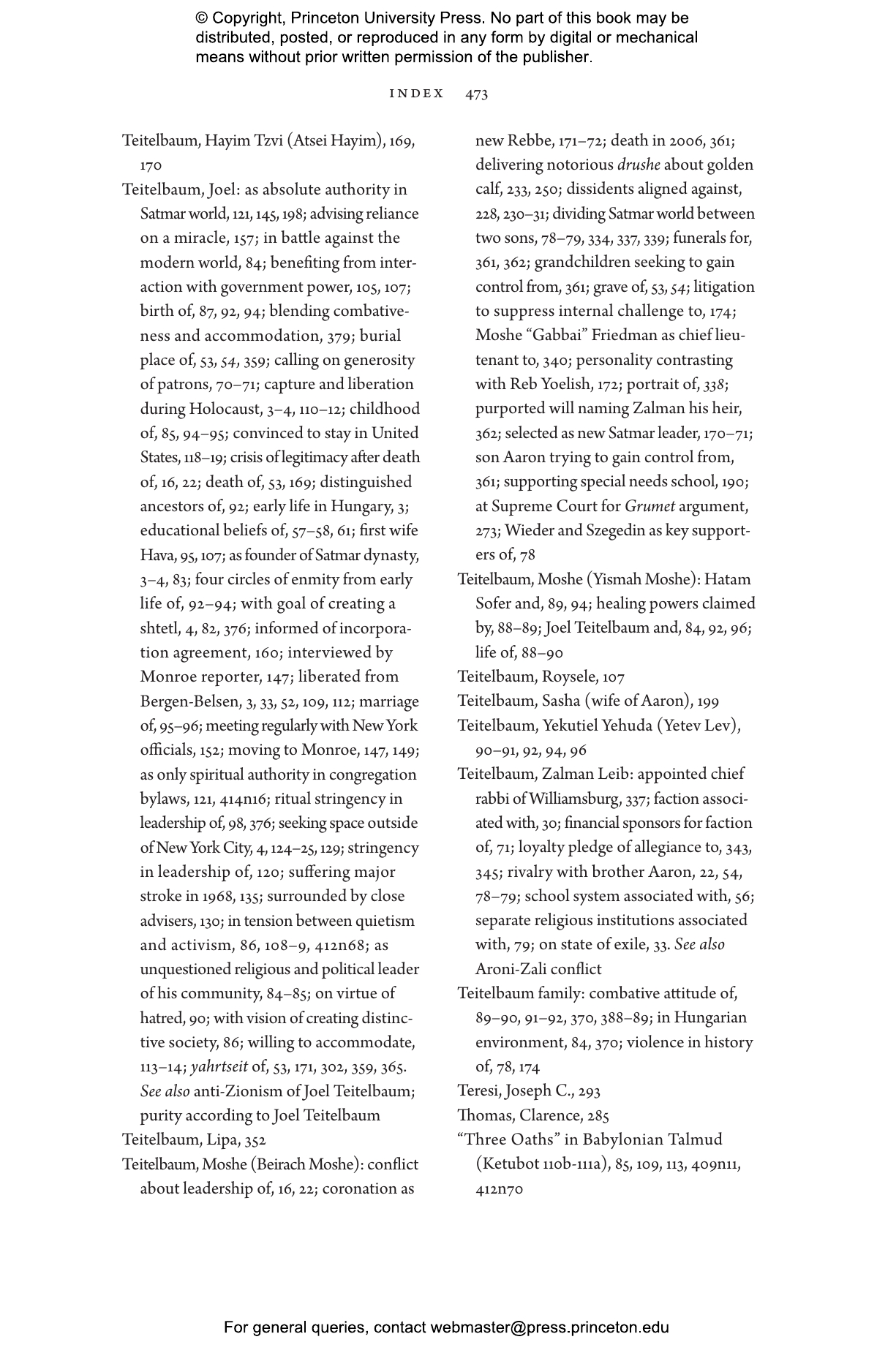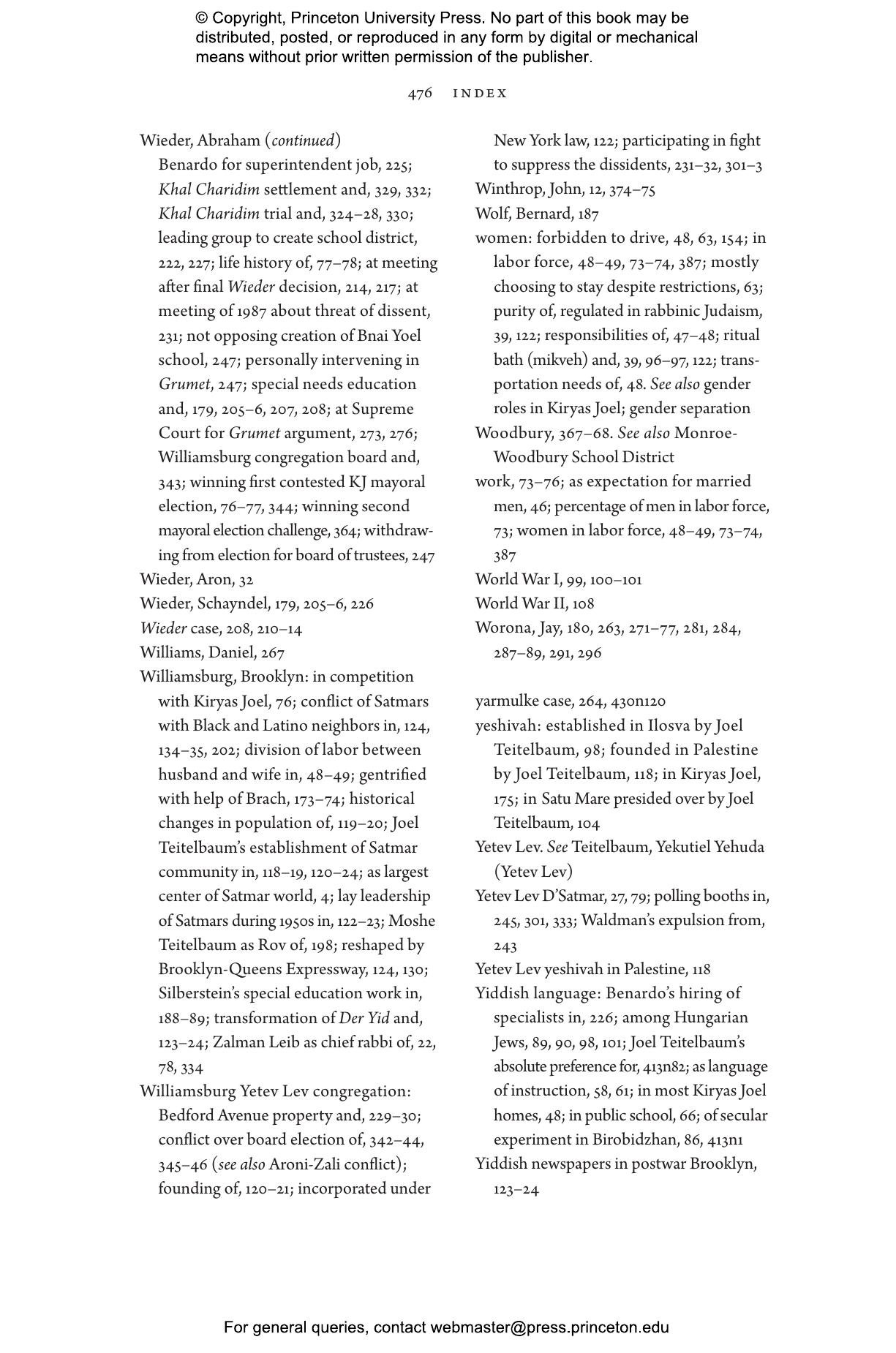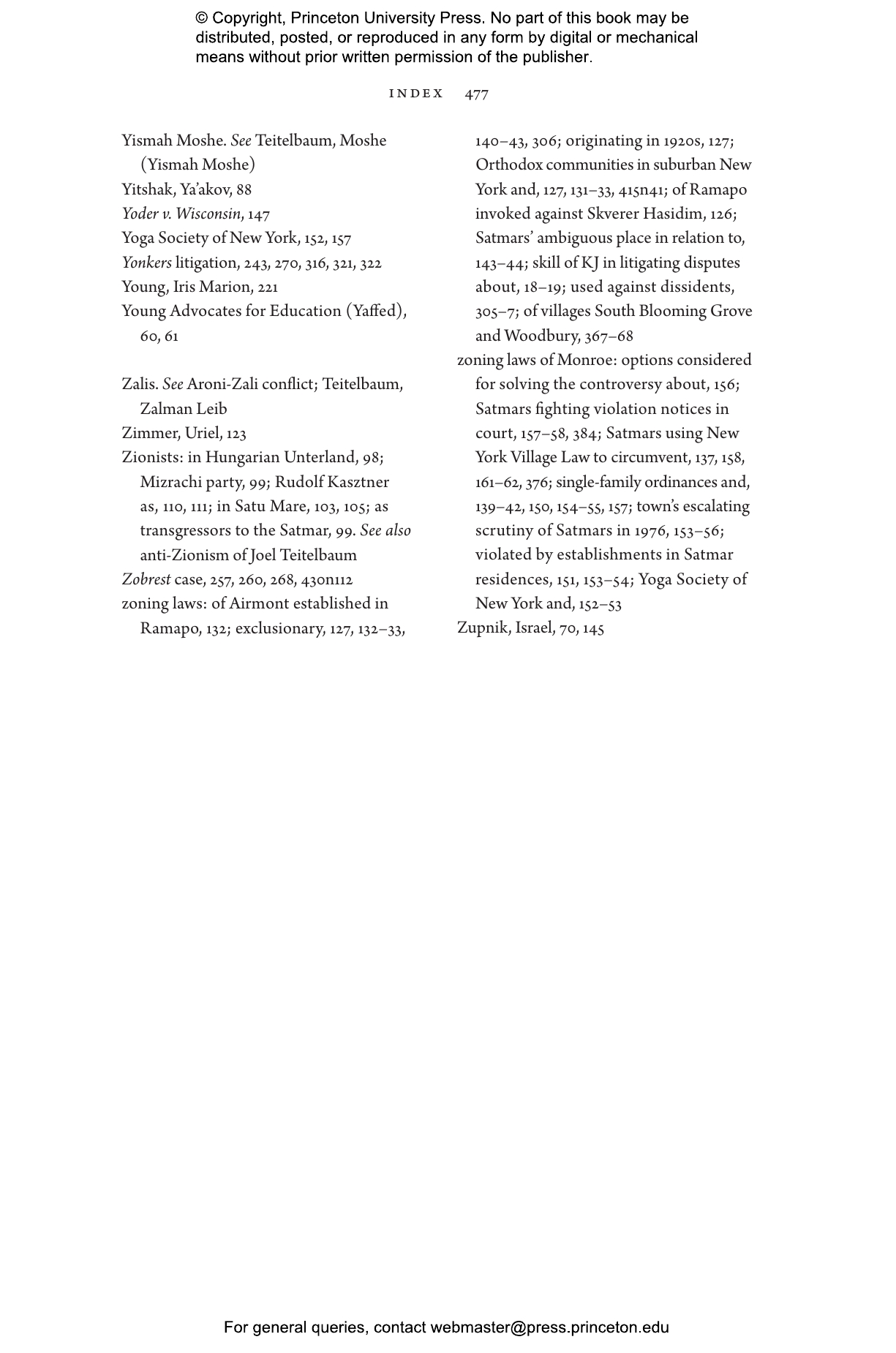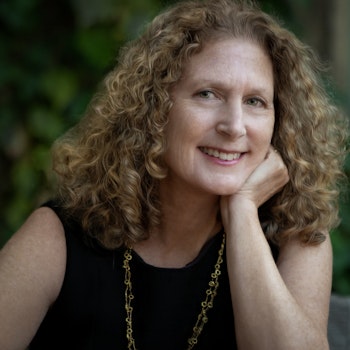Settled in the mid-1970s by a small contingent of Hasidic families, Kiryas Joel is an American town with few parallels in Jewish history—but many precedents among religious communities in the United States. This book tells the story of how this group of pious, Yiddish-speaking Jews has grown to become a thriving insular enclave and a powerful local government in upstate New York. While rejecting the norms of mainstream American society, Kiryas Joel has been stunningly successful in creating a world apart by using the very instruments of secular political and legal power that it disavows.
Nomi Stolzenberg and David Myers paint a richly textured portrait of daily life in Kiryas Joel, exploring the community’s guiding religious, social, and economic norms. They delve into the roots of Satmar Hasidism and its charismatic founder, Rebbe Joel Teitelbaum, following his journey from nineteenth-century Hungary to post–World War II Brooklyn, where he dreamed of founding an ideal Jewish town modeled on the shtetls of eastern Europe. Stolzenberg and Myers chart the rise of Kiryas Joel as an official municipality with its own elected local government. They show how constant legal and political battles defined and even bolstered the community, whose very success has coincided with the rise of political conservatism and multiculturalism in American society over the past forty years.
Timely and accessible, American Shtetl unravels the strands of cultural and legal conflict that gave rise to one of the most vibrant religious communities in America, and reveals a way of life shaped by both self-segregation and unwitting assimilation.
Awards and Recognition
- Winner of the National Jewish Book Award, American Jewish Studies Category
- A New Yorker Best Book of the Year
- Honorable mention for the Saul Veiner Book Prize, American Jewish Historical Society
"Extraordinary and riveting."—Gideon Lewis-Kraus, The New Yorker
"An extraordinarily detailed and fascinating analysis.
"—Glenn C. Altschuler, Jerusalem Post
"A brilliant, eye-opening, thought provoking, easy to read and enjoyable book."—Israel Drazin, Times of Israel
"An impressive charting of the legal, cultural, and political machinery set in motion by the creation of a new religious settlement, which eventually became a bona fide municipality. . . . Stolzenberg and Myers provide a fluidly written, lively account of what happens when game but untested religious pioneers encounter the very different challenges of the suburbanized countryside."—Lis Harris, New York Review of Books
"Anyone interested in the future of Jews in diaspora (not only Hasidic Jews) should be grateful to [Stolzenberg and Myers] for what they’ve accomplished. . . . Fine-grained in their narrative, offering impressively detailed documentation, leaving plenty of room for the interplay of contingency, strong and often clashing personalities, and the larger structural issues of capital, territory, and state law."—Jonathan Boyarin, Marginalia
"[American Shtetl] describes in arresting detail the trajectory and triumph of arguably one of the most paradoxical villages in the United States. But the fact-intensive story Myers and Stolzenberg captivatingly tell also permits the astute observer to extract an important insight of constitutional significance: religious minorities do not always lack the political power to protect their interests, as is often assumed. Kiryas Joel may not be rich, but it has clout."—Zalman Rothschild, Los Angeles Review of Books
"I. . . recommend [American Shtetl] to anyone seriously interested not only in the central topic of religious diversity, whether in the United States or elsewhere, but also the various uses (and abuses) of litigation. . . . American Shtetl is a "must-read" book for anyone interested in the realities of religious pluralism in America."—Sandy Levinson, Balkinization
"[American Shtetl is] a tale of religion, race, real estate, identity politics and so much more. An important read for anyone looking to understand American Hasidic Jewishness."—Emily Burack, Hey Alma
"Some of the things that make American Shtetl so special is the attention to detail, the fresh perspective, and the respect for the subject matter. Myers and Stolzenberg meticulously describe the major events and lawsuits that defined the early history of [Kiryas Joel], and the personalities that shaped each one.
"—Joel Petlin, The Monsey Mevaser
"Fascinating. . . . This is an American story as well as a Jewish one."—Dominic Green, Jewish Chronicle
"Nomi M. Stolzenberg and David N. Myers make a compelling case that the village is far from an unreconstructed throwback to a European shtetl. Rather, it is a thoroughly American phenomenon."—Leah Libresco Sargeant, First Things
"An engaging and extremely well-researched history of the growth and development of Kiryas Joel."—Ben Rothke, Jewish Link
"Stolzenberg (Univ. of Southern California Gould School of Law) and Myers (Univ. of California, Los Angeles) argue persuasively, if counter-intuitively, that the development of Kiryas Joel is “'quintessentially American'."—J. D. Sarna, Choice
"Fascinating and very enlightening."—Chaim I. Waxman, Contemporary Jewry
"Fascinating and original. American Shtetl offers a surprising and compelling account of a distinctively American story."—Martha Minow, author of When Should Law Forgive?
“Timely and provocative. From two brilliant scholars and cultural translators of our time comes an honest and compelling window into the secluded, separatist micro-society of Kiryas Joel. Stolzenberg and Myers paint a sensitive and at times searing picture of a Jewish community that is simultaneously a world apart and a quintessentially American invention. American Shtetl is riveting.”—Rabbi Sharon Brous, Founder/Senior Rabbi, IKAR
“The Hasidic village of Kiryas Joel is not as anomalous as it looks. It has a history, brilliantly described in this book, that could have happened only in America. And only Stolzenberg and Myers could have turned the extraordinarily complicated legal and political entanglements that make up this history into an accessible and fascinating story.”—Michael Walzer, author of The Paradox of Liberation: Secular Revolutions and Religious Counterrevolutions
"A superb, important book. American Shtetl is a brilliant work of scholarship that offers a new way of thinking about the complex American Jewish relationship to religious freedom and political liberalism."—James Loeffler, author of Rooted Cosmopolitans: Jews and Human Rights in the Twentieth Century
"An excellent book. Stolzenberg and Myers provide a wonderful mix of history and reportage to contextualize and enrich their argument."—Paul Horwitz, author of First Amendment Institutions


